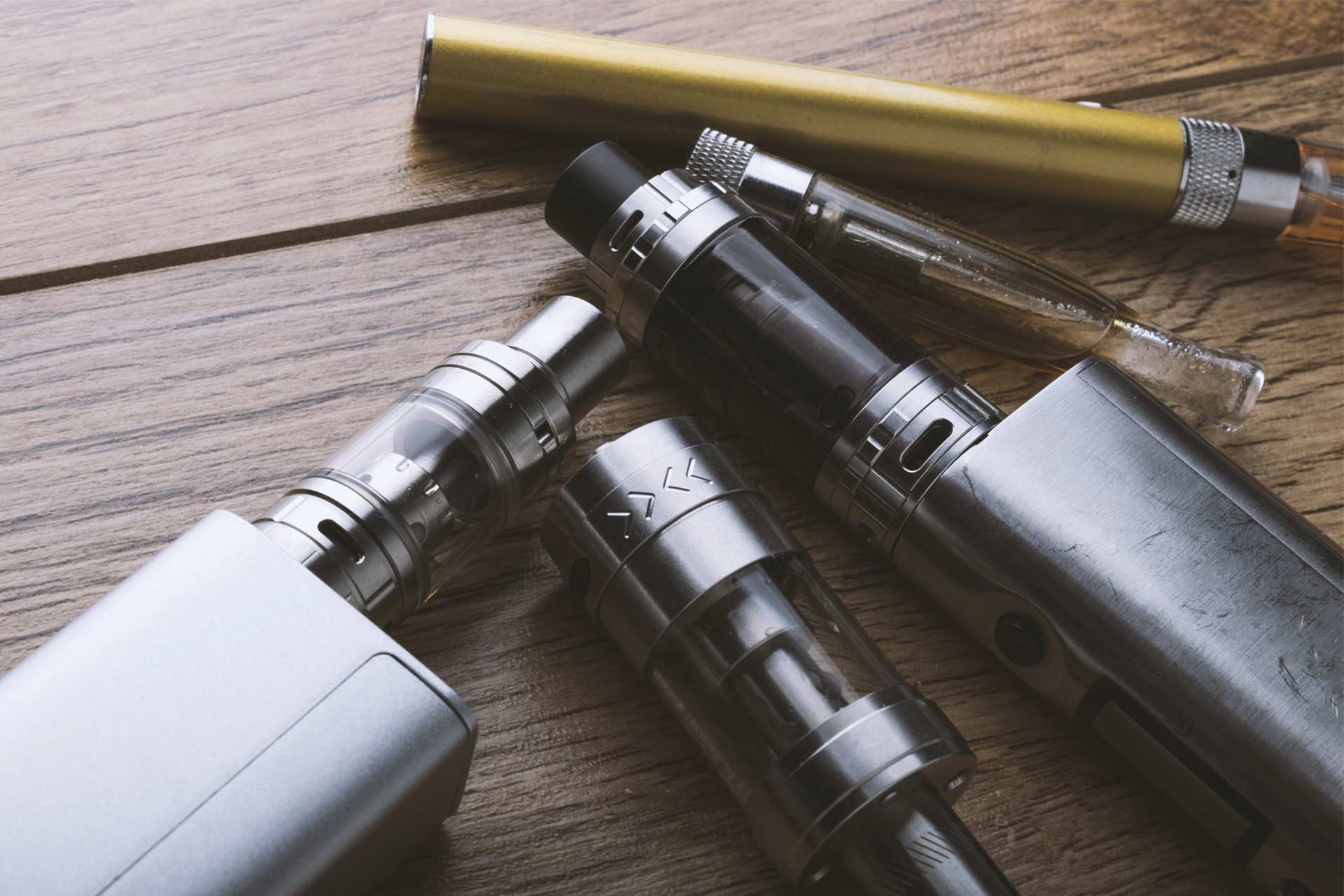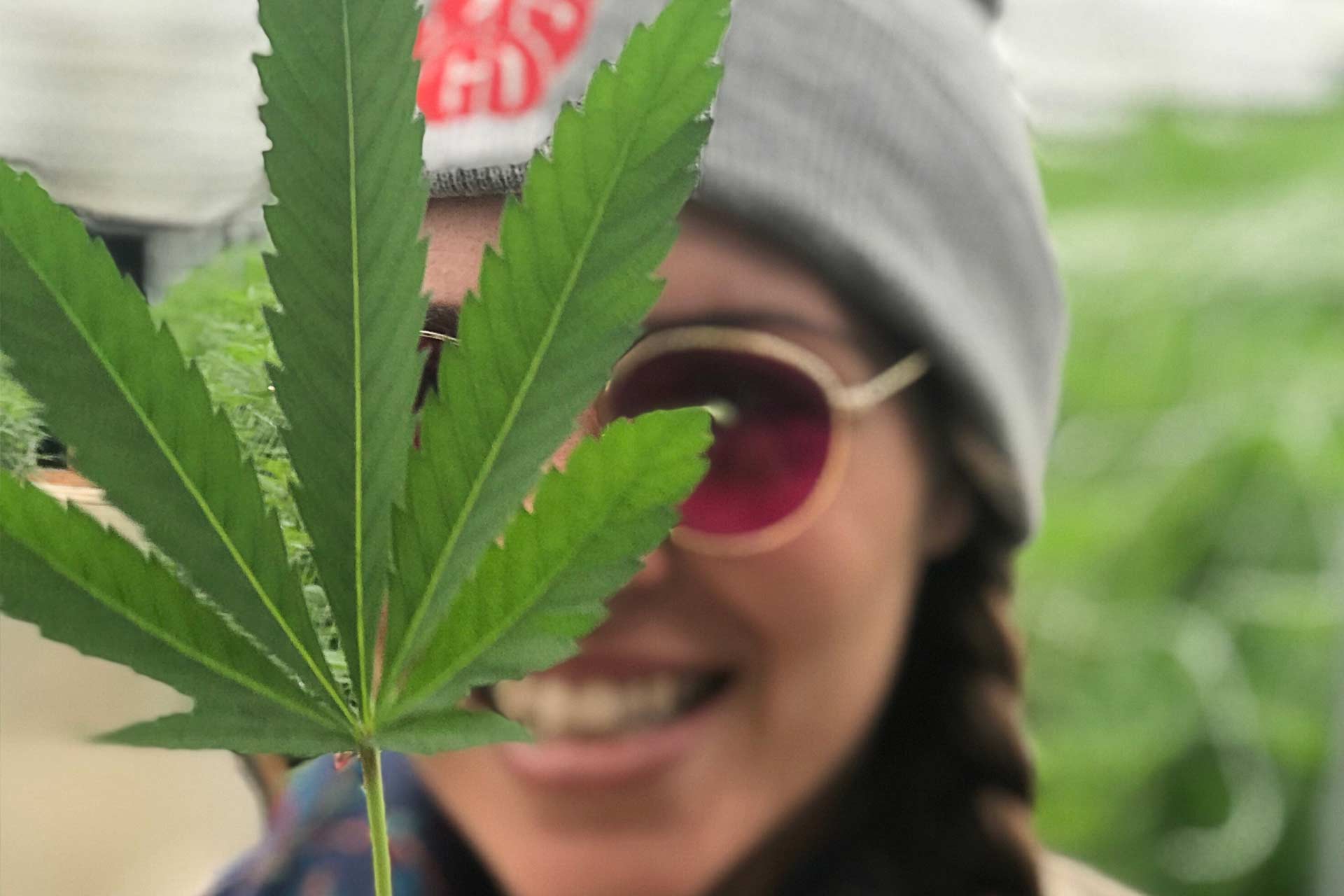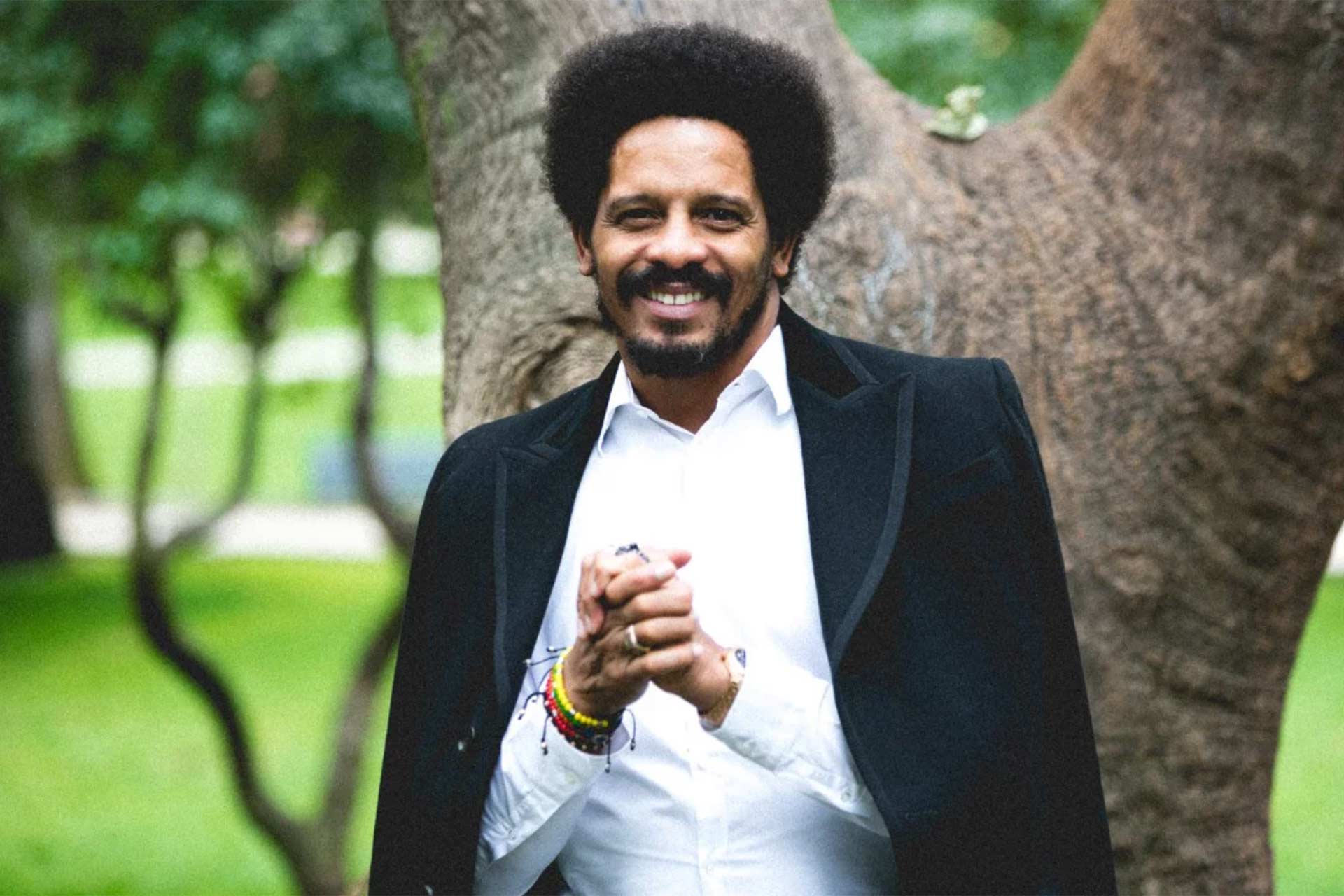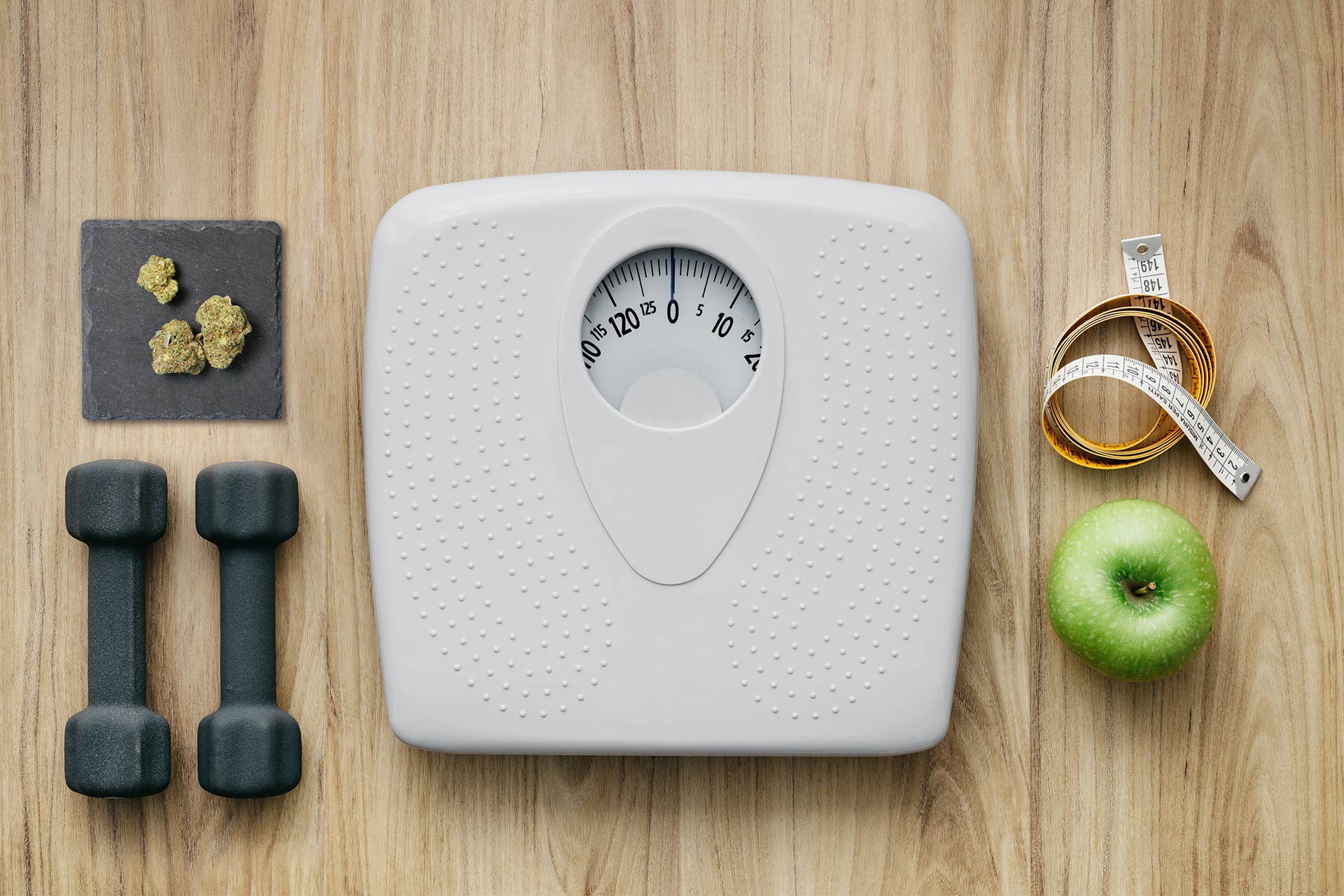The Verdict is in: Legal Cannabis Doesn’t Increase Violent Crime.
New research shows that despite what detractors claim, legal cannabis does not increase violent crime.
A recent study analyzing crime in Colorado and Washington since legalization finds that legal recreational cannabis has little, if any, impact on violent crime rates. The study lends credence to the longstanding opinion (in pro-cannabis circles) that legalizing recreational cannabis does not inspire criminality.
Investigators associated with the Department of Justice and Criminology at Washington State University monitored and assessed trends in Colorado and Washington following legalization, and compared their findings to those of non-legal states. The researchers were particularly interested in patterns specific to violent crime, aggravated assault, property crime, auto theft, larceny, burglary, and robbery rates.
“Marijuana legalization and sales have had minimal to no effect on major crimes in Colorado or Washington. We observed no statistically significant long-term effects of recreational cannabis laws or the initiation of retail sales on violent or property crime rates in these states”. —The Cannabis Effect on Crime: Time-Series Analysis of Colorado and Washington State
A similar study published in the Economic Journal in 2017 found that states with legal recreational cannabis near the U.S.-Mexico border saw a 5.6% to 9% decrease in violent crimes.
The researchers selected Colorado and Washington for this study because our states were among the first to legalize recreational cannabis and its supporting industry. Nine states have followed our lead, including— California, Illinois, Alaska, Maine, Massachusets, Nevada, Michigan, Oregon, and Vermont— as well as Washington D.C. Several more states are set to legalize recreational cannabis soon.
We’re happy to see research into the real impact of cannabis legalization on American cities and states. Cannabis detractors like former NY Times columnist, Alex Berenson, who authored the book Tell Your Children: The Truth About Marijuana, falsely claim that cannabis legalization caused a “sharp increase in murders and aggravated assaults in Colorado and Washington.” The new research from Washington State University shows that after the start of legal recreational cannabis sales in our state as well as in Washington, violent crime rates remained virtually unchanged. A far cry from “sharp increases in murders and aggravated assaults.”
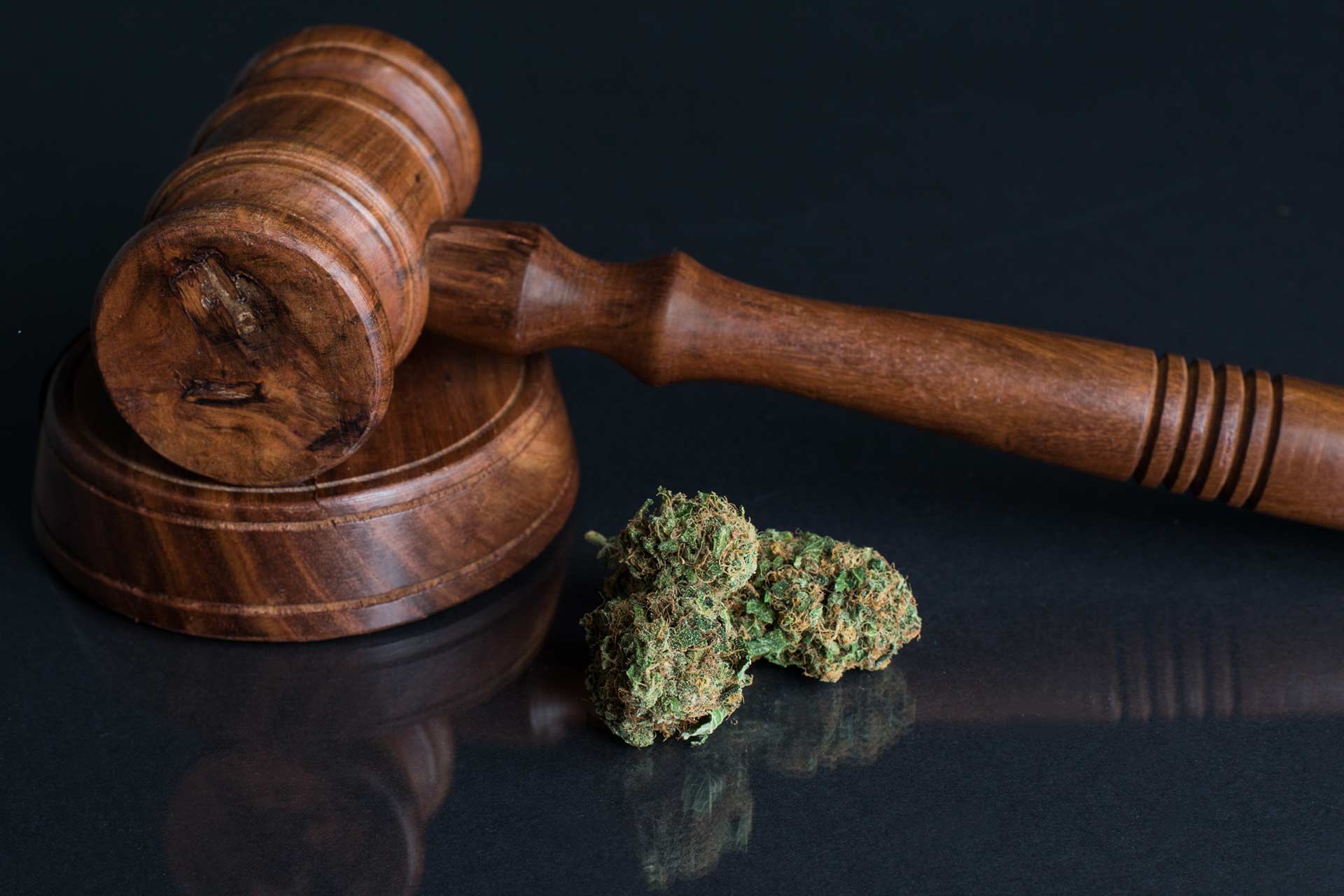
Berenson claims that cannabis-inspired psychosis leads to violent crime, saying, “The black tide of psychosis and the red tide of violence are rising together on a green wave.” Now we know that evidence from Washington and Colorado debunks Berenson’s argument in a big way.
Unfortunately, cannabis critics like Berenson bring back the racially motivated depression-era ideologies of Harry Anslinger, the first commissioner of the United States Treasury Department’s Federal Bureau of Narcotics.
In a 1934 report to the League of Nations committee, Anslinger wrote that “fifty percent of violent crimes committed in districts occupied by Mexicans, Turks, Filipinos, Greeks, Spaniards, Latin-Americans and Negroes may be traced to the abuse of marihuana.” Anslinger goes on to quote a California police officer who said cannabis “gives men the lust to kill, unreasonably, without motive—for the sheer sake of murder itself.”
Anslinger (among others) is responsible for cannabis prohibition and the stigma we are still fighting. He blamed cannabis for armed robbery, “degenerate sex acts,” the killing of police officers, and a case in which a young man murdered his family with an ax. The beliefs of Anslinger and his peers set the stage for decades of misinformation and stereotypes surrounding our favorite plant.
We’ve come a long way from the rampant misinformation of the cannabis prohibition era, but if the comments of authors like Berenson are any indication, there’s work to be done. Fortunately, data trumps assumptions and reports like those coming out of Washington State University, provide us with a clear picture of the effect of recreational cannabis legalization on American cities and states.
And that picture is positive.
Too Much of a Good Thing: Cannabis Overconsumption
Can you consume too much cannabis? Yes. Will it harm you? No.
Overindulgence isn’t limited to ice cream, potato chips, candy, or cocktails. Like most things in life, you can consume too much cannabis. You might know the feeling:
Anxious, weak, pallid, shaky and paranoid, with a killer case of cottonmouth— tell-tale signs you’ve crossed into the realm of overindulgence. Should you be alarmed? No, it’s all good.
Unlike alcohol or opioids, cannabinoids aren’t a central nervous system depressant and can’t cause a lethal overdose—-no matter the quality, strength, or quantity. The DEA’s own administrative law judge famously proclaimed, “Marijuana, in its natural form, is one of the safest therapeutically active substances known to man.”
“Because cannabinoid receptors, unlike opioid receptors, are not located in the brain stem areas controlling respiration, lethal overdoses from cannabis and cannabinoids do not occur.” —National Cancer Institute
Don’t panic.
Don’t worry; cannabis is non-toxic. But it’s easy to overindulge. And while the effects are unpleasant to the point of worrisome, it won’t harm you in the long term. Amid a weed-induced panic attack, however, it’s easy to convince yourself fatality is a threat.
Your first experience of cannabis overconsumption is alarming. Friendly reassurances don’t help, and your internal conversation— fixating and bouncing from thought to thought— isn’t useful. Take a deep breath; it’s going to be okay.
What happens when you overconsume cannabis?
Cannabis has at least 60 kinds of cannabinoids—chemical compounds that interact with our brain’s receptors. THC (Tetrahydrocannabinol), is responsible for much of cannabis’s effects, including the blissful high. THC closely resembles anandamide, the cannabinoid responsible for mood, sleep, memory, and appetite regulation.
Cannabinoids keep us fixed on magnified thoughts and perceptions. They also inflate dopamine levels (this is why you feel relaxed and euphoric).
The effects of cannabis vary by individual, and this is why not every consumer has an enjoyable or relaxing time. Consuming too much cannabis further amplifies the results, explaining why people in the throes of overconsumption fixate on the negativity of their experience.
What are the symptoms of overconsumption?
Paranoia
Anxiety and paranoia are common outcomes of cannabis overconsumption. We know that cannabis is non-toxic and not lethal, but try telling that to yourself when you’ve had too much.
Amid the panic, consumers think they are experiencing a heart attack, or worse, that they are dying. If you find yourself having this experience, breathe and stay calm. You’ll be okay.
Exhaustion
Cannabis overconsumption makes you sleepy. It’s that simple. Of all the potential side effects, however, fatigue is positive. Sleeping off the effects of cannabis can keep you from experiencing the more uncomfortable aspects of overindulgence.
Decreased blood pressure
THC reduces blood pressure. This explains why your eyes dilate and turn red after consumption (Visine, anyone?). As your tolerance builds, the effect cannabis has on blood pressure is minimized, but new consumers who overindulge experience an exaggerated (and alarming) blood pressure drop.
Impaired movement
Cannabis compounds impact motor control, and that can leave you feeling wonky.
We work with CDOT to keep impaired drivers from getting behind the wheel for this reason (among others). More on that here.
Rapid heartbeat
New cannabis consumers often experience a quickening of the heart. Similar to decreased blood pressure, this effect lessens as your body develops tolerance. For some consumers, a quickened heartbeat exacerbates their feelings of panic or anxiety, adding to the negative experience.
Your heart rate might speed-up after consumption, but don’t worry, it will return to normal within a few hours.
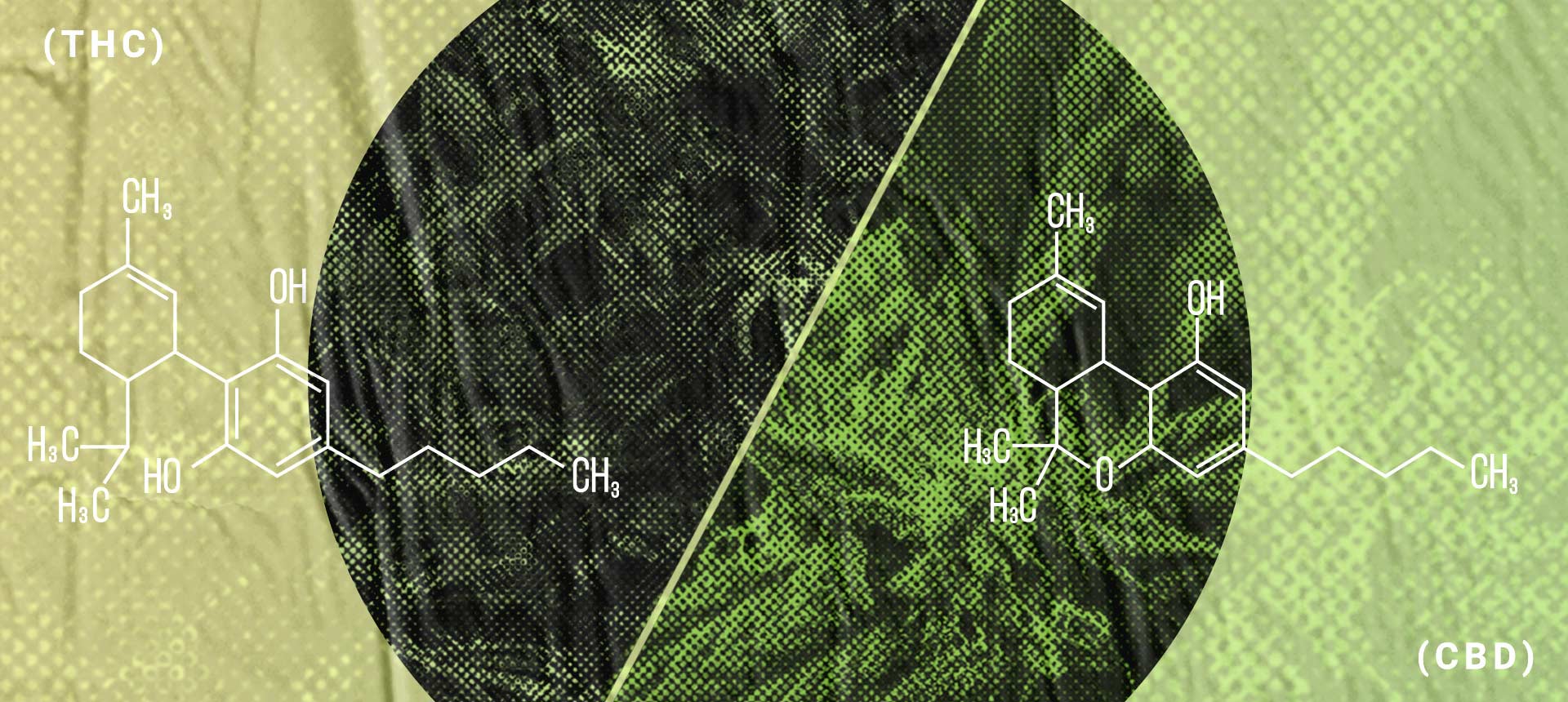
What you can do to counteract the experience.
Take a deep breath.
If anxiety and panic are ruining your experience, close your eyes and take ten deep, meditative breaths. Slowly inhale through your nose (four counts), hold your breath for at least three seconds, and exhale deeply (four counts). Repeat until blissful feelings return.
CBD helps.
CBD reduces anxiety and relaxes an overactive brain. It’s nature’s antidote to THC. CBD blocks THC from binding to your brain’s cannabinoid receptors and dampens its psychoactive effects.
Hydrate and eat.
If you’ve had an edible and are having a negative experience hydrate and eat (non-medicated food). Water aids digestion and food gives you something else to focus on (it’s also comforting).
Terpenes are therapeutic.
Since cannabis shares terpene profiles with many fruits and vegetables, you can counteract a negative experience with terpenes that minimize cannabis effects. Black pepper, lavender, lemon juice (limonene), and others, offset unpleasant cannabis side-effects.
Relax.
Since 90% of what you are feeling is psychological, and nothing terrible is going to happen, you can relax. Step outside for fresh air, take a warm shower, and remember, this too shall pass.
Don’t worry; you’re going to be okay.
While you can consume too much cannabis, it’s not fatal. In a few hours, the negative side-effects of overconsumption dissipate, and you’re left wondering why you panicked, or worse, why you called the paramedics. The adage, start low and go slow applies to every consumer and every cannabis consumption method. We don’t’ want to see you (or anyone else) in the E.R.
Be mindful, chill out, and enjoy.
If you have questions about cannabis and how it might impact you, or you’ve consumed too much and need someone to speak with, Leaf411 is here to help. Leaf411 is Colorado’s first free cannabis nurse hotline! Leaf411 is a free resource for people to call and speak directly to a medical professional that can point them in the right direction.
Corporate Social Responsibility and the Colorado Cannabis Community
Being a good neighbor is a lot of work, but we’re up for the challenge.
What does it mean to be a good neighbor? Not in the State Farm “Like a good neighbor,” or Mr. Rogers, “Won’t you be my neighbor?” sense, but as a business, we want to know what it means to be an excellent corporate neighbor – a great community partner?
Good neighbors support the community. They step-in when others won’t – or can’t – and lend a hand. It’s strangers distributing food to other strangers, or a good samaritan who stops to change your flat tire. It’s everyday people performing small actions that hold a broader significance.
And, more importantly, it’s time. Time is the ultimate luxury, and time is always in short supply. An investment of time shows a genuine commitment to the community, and in many ways, time is worth more than dollars (of course, money is helpful, too).
But most people don’t have time to volunteer. That’s where we come in.
Giving back to the community sits at the top of our list of company priorities. It’s up there with providing an excellent customer experience, and showing Coloradoans the benefits of cannabis. As part of our Cannabis Social Responsibility initiative, we are an active participant in the community.
To us, being a good neighbor means acting less like a business and more like an individual, but on a grand scale. Instead of providing one, or even a handful of meals, we can feed hundreds by sending teams of volunteering budtenders (along with front desk staff, inventory control, vendors, and back-office teams) and providing financial support.
Or we can help grow the vegetables that wind up on a needy family’s plate.
[no_blockquote text=”“As a Colorado company, Lightshade is committed to providing support to the community in which we live. Through intentional and engaged community investments, volunteer days, and fundraising efforts, we aim to increase the vitality of Colorado’s diverse neighborhoods and expand our industry’s capacity to do good.
We don’t just give back, we give forward.”” title_tag=”h3″ show_border=”yes” show_quote_icon=”yes” width=”80″ line_height=”30″]
With the help of KindColorado, we’ve engaged our corporate resources and local retailers to support community projects and non-profits. Lightshade employees have logged more than 200 volunteer hours since 2016. Our focus today is on those experiencing homelessness, hunger relief, and working with seniors and veterans. Also, each of our eight Colorado retail dispensary locations is partnered with community agencies and non-profits to support food-insecure populations.
Colorado is where we live and work, and it’s our responsibility to give back.
Our efforts haven’t gone unnoticed. This month we became the proud recipient of the “Good Neighbor Award” presented by Cannabis Doing Good.
“Boasting an impressive record of 3,492 volunteer hours, and $121,000 of in-kind financial donations, Lightshade is focused on increasing diversity and inclusion and removing barriers to workforce entry by partnering with the Gathering Place (among others).” – Cannabis Doing Good
While it’s vital that our CSR work receives recognition, the real value of this award is the light it shines on cannabis’ potential to do good. Our industry has a big heart and deep pockets, and we’re ready to put both to work.
Still, too many people see corporate social responsibility (CSR) as nothing more than business owners signing checks, or a clever marketing gimmick. That happens, but not in our cannabis community, at least not if we have a say in the matter.
About the Good Neighbor Award (from Cannabis Doing Good):
Community Engagement and social responsibility are the founding values of CDG. We believe cannabis has the opportunity to create political, social and economic benefits for communities, showcasing this industry as an authentic community asset. We want to recognize those companies implementing community engagement programs, encouraging volunteer hours, and meeting community needs in new and thoughtful ways. Are you a cannabis company Mr. Rogers would be proud of?
Click here to learn more about the Lightshade Cannabis Social Responsibility initiative, and please get in touch if you’d like to help us make a difference in Colorado.
Spotlight | Cindy - Survivor
“My name is Cindy and I am a middle school counselor. I’ve been a middle school counselor for about 20 years. July 11th, I went to get my annual mammogram after they harassed me very often, because I hate doing it. And that same afternoon they called me and said that I needed to get another one done at the bigger place or whatever. That’s when I went and did a self exam and felt it and was just like, ‘Oh my God.’ And the 15th it was confirmed, cancer was confirmed.”
“At first I was going to have a double mastectomy and then a reconstruction on the same day and then they found it in my lymph nodes, which put me in a whole different level.”
“My options were to still do the bilateral mastectomy and then a full lymphectomy, which has lots of side effects. And they were still going to have to do the chemo and radiation. It didn’t make sense to me to do that. I decided to go with the mastectomy. Probably the hardest part for me was my first chemo because going in the room, it was like, ‘Holy crap, this is really happening to me.’ I just kept thinking, ‘I can’t believe this is me.’ And then the nurse started talking to me about all the side effects and I was having a really hard time holding it together. Thankfully, I had a friend there who was trying to keep me distracted and laughing, but that was a pretty awful day.”
“My first chemo treatment was September 27th. After the first treatment, I felt completely stone drunk. I mean the brain wasn’t talking to my fingers. I’m trying to type and there was no connection and it was just the weirdest, incredible feeling I’ve ever had before. And then the next day I got really ill. After that, I was just tired. It’s now more exhaustion, like trying to go back to the gym was a lot harder than I thought it was going to be.”
“Since the cancer diagnosis, because they give you so many different meds for pain and they don’t really work anyway. They just make it a little easier to tolerate. But the CBD and cannabis gave me general pain relief. It’s absurd to even say that, but it’s true. Cannabis is also what kept me from being a skeleton. I completely lost my appetite probably from the surgery, and then it got worse as the treatments became bigger deal. I’d lost a lot of weight and like 12 pounds and that’s when I decided I was going to try either edibles or a vape pen just so I can eat. That’s really what it does.”
“I’ve been using a number of different products just to help me get through the day. One of them is the Stratos Energy, which are tablets. I was hesitant because there’s still some THC in it, but if I’m cleaning around the house or whatever. My energy level is like 50% what it was. So to be able to use something that helps me clean my house, do my laundry, it feels great.
“I’ve also been using a lot of tinctures that helped me with general pain relief. I’ve been using the Aliviar CBD 20:1, as well as Mary’s Medicinals CBD tincture. I’m always on the lookout for new products that work best for me.”
“I know it may not be the same for everyone, but this is how it’s impacted me.”
“I’ve always been a gym rat. I love being active. I love classes. I would go four to five days a week. It’s my meditation, my mantra, and I haven’t been for seven or eight weeks and today was my first day back and wow. It was exhausting. I felt like I’d never worked out in my entire life. Awesome that I finished it, made it through without passing out.”
“I’ve been to a lot of dispensaries in the years and there’s nothing that even compares to the experience that I had at Lightshade. Sometimes even going to a dispensary, I’d feel a little nervous or I don’t know, but I walk in there and I’m welcomed. I don’t feel like the stigma or anything. It’s just a really good feeling. The staff is very, not only knowledgeable, but they care. They answer any questions I have and it’s a trusting environment.”
“What I’m most looking forward to about the future? Feeling like myself again, looking like myself again, having the energy that I had before and then find out what all the blessings are that I’ve experienced as a result of this diagnosis. I truly believe every experience has growth at the end. And so that’s what I mean by that, is looking forward to what that growth for me is going to be. “
“My name is Cindy. I’m a cancer survivor and I am looking forward to the future.”
Budtender Education: Breaking Away from the Indica vs. Sativa Conversation
The indica vs. sativa debate rages on despite new (and better) strain selection methods.
Many budtenders (and consumers) still rely on indica vs. sativa when helping customers find the ideal strain. For years this worked, but as our overall cannabis knowledge expands, we’ve learned there are better ways to help customers predict their high.
Terpenes, for example, are a better indicator of the impact a particular strain has on the consumer.
But old habits die hard, and the majority of budtenders and cannabis consumers haven’t gotten the terpenes memo. Indica and sativa prevail because that’s how customers are trained to think about cannabis.
Still, terpenes are slowly entering the cannabis consumer’s vocabulary, and this is where we’ve found confusion in Lightshade’s dispensaries. Our goal is to provide overall cannabis education to consumers (and budtenders). This includes guiding them to the perfect strain for their needs or mood.
Our “balance” categorization system is designed to help customers break out of the indica vs. sativa debate. We use four categories to simplify the strain selection process for customers: Enliven, Inspire, Calm, and Rest. Our budtenders are trained to guide consumers to the right strain based on the way they want to feel, or their daily plans.
It seems simple, right? It’s not.
Consumers, accustomed to selecting cannabis based on indica, sativa, or hybrid, aren’t always interested in deviating from the tried and true. Our eager-to-please budtenders often bend to the will of customers and abandon the balance spectrum to avoid confusion.
As terpenes force their way into the cannabis lexicon, however, the conversation grows difficult. A slightly educated customer, or a new cannabis consumer who has spent hours googling ahead of their first dispensary visit, walk into our stores perplexed after absorbing content with conflicting philosophies.
Still, we (and you) must stay the course. It’s easy to forget that the legal cannabis industry is in its infancy, and it’s going to take time to change the conversation.
Budtenders are the key to consumer education.
Every industry professional knows that budtenders are always the first line in a cannabis dispensary. Your brand’s reputation is in their hands. Budtenders are responsible for providing the kind of outstanding service that has customers shouting your dispensary name from rooftops.
You’d be remiss, however, to think that the budtender’s responsibility ends at giving excellent customer service. Arguably, the most critical role your budtenders play is providing customers with the knowledge to help them make an informed purchase. Legal cannabis is still a fresh idea for consumers, and many never touched it because of its prohibition.
Your budtenders must embrace their role as teachers and provide at least a basic level of education. Slowing the process down might be difficult, but the result is a well-informed customer who walks out of the dispensary with precisely what they are looking for.
And helping customers understand terpenes is a crucial aspect of cannabis education.
 What’s the deal with terpenes?
What’s the deal with terpenes?
Terpenes are the fragrant oils that give a strain its signature aroma and serve as a blueprint for the way cannabis impacts the consumer. And terpenes are all around us – not just in cannabis. They are found in a variety of plants and even a handful of insects. In the world of plants, terpenes offer protection by emanating pungent flavors and aromas to repel herbivores and attract predators.
Consumers are used to selecting strains based on potency levels of CBD and THC, and that’s okay. But, as we now know, there’s more to cannabis than these two compounds. With terpenes as a guide, budtenders can provide a more accurate representation of how a strain will affect its consumer.
It’s also important to understand that indica and sativa are descriptors of cannabis plant species, distinguished by appearance. The terms aren’t reflective of the therapeutic qualities inherent to a strain. Consumers also need to understand that there are few true sativa’s and indica’s. Most of today’s strains are hybrids that lean one way or the other.
Terpenes interact with cannabis compounds in a way that produces the unique characteristic of each strain. Understanding terpenes and their associated therapeutic properties enable budtenders (and consumers) to gain insight into specific cannabis compounds that create the desired effects. If a customer identifies a strain that meets their needs, we can look closely at its terpene profile and find strains that share similar characteristics.
Stay the course.
Most cannabis consumers are in the habit of identifying strains by indica and sativa, but people can adapt. With consistency, education, patience, and, most importantly, time, consumers, and the industry as a whole will move past indica vs. sativa debate.
Black Market Cannabis Vapes: What You Need to Know
We must protect our favorite plant (and consumers) from the scourge of black market cannabis.
Cannabis industry veterans are hardened. We’ve forged a path to success in a field plagued by regulations and barriers (both legal and philosophical). And the battle to legitimize (and legalize) our favorite plant rages on.
We’ve got a bone to pick with the media – but recent stories are true.
National and regional media outlets tend to portray cannabis in a negative light. Since news coverage influences public perception, every person must understand the often-flawed journalistic approach to cannabis reporting.
American media frames the cannabis conversation in such a way that it’s difficult for people to get the truth. And the value of truth is immeasurable.
We can’t blame consumers outside of states where recreational and medical cannabis is legal for not having a clear picture of the advantages – and potential drawbacks – of cannabis. Decades of prohibition and misinformation collide with a continuing stigma; it’s the perfect storm of falsehoods and insufficient reporting.
It’s easy to understand why many Americans are wary of cannabis. It is also impossible to ignore what’s happened in recent months.
Black market cannabis is a problem.
Lawmakers, parents, cannabis consumers, and industry vets are deeply concerned after the rash of vape-pen related illnesses and death. We get it – we are too.
E-cigarettes and cannabis vapes have been available for more than a decade, but reports of vaping-related illnesses only emerged this year. Investigations conducted by state health departments in Wisconsin and Illinois first revealed illness among tracked patients in April. The first vaping-related death was reported on August 23rd, and reports of a cannabis vape influenced death emerged in September.
The CDC, as of Tuesday, September 10, reports as many as 450 cases in 33 states of severe acute respiratory distress syndrome caused by vaping black market THC products. As many as 6 patients have died as a result of the condition.
We should note: there are two suspected cases in Colorado.
Purchasing black market THC or nicotine-infused vape cartridges puts you at immediate risk of developing a devastating and potentially deadly lung condition. With access to the nation’s best cannabis, in Colorado, there is no reason to purchase illicit products. Don’t do it.
What’s causing the illness?
Symptoms – and treatment – in most documented cases parallel a condition known as lipoid pneumonia. While the exact cause of the condition is as yet undetermined, New York health authorities confirm synthetic Vitamin E oil is found in nearly all of the seized vape cartridges in that state.
Black market manufacturers use synthetic Vitamin E oil as a cheap alternative to safer thickening agents. NY authorities subpoenaed three thickener manufacturers: Honey Cut, Floraplex, and Pure Diluent; tests show the products of all three manufacturers contain synthetic Vitamin E oil.
Consumers should be wary of products from these brands: Chronic Carts, Dank Vapes, and West Coast Carts.
Illicit cannabis vape manufacturers use synthetic Vitamin E to dilute THC oil without thinning its viscosity. It’s primarily an issue on the black market, but some products containing the synthetic oil have made their way into unregulated pop-up shop style dispensaries in Oregon and California.
The latest generation of thickening agents is misused in black-market cartridges. Legal thickener manufacturers strongly disapprove of next-generation cutting agents in cannabis vape cartridges. We don’t know the precise ramifications of inhaling thickener aerosol when burned or heated, but if the recent rash of hospitalizations and death is any indication, it’s a practice with deadly consequences.
Federal Cannabis prohibition is a big part of the problem.
The Federal prohibition of cannabis creates a market for unregulated, untested, and poor-quality products that are also deadly. Much like alcohol prohibition created a demand for bath-tub gin, opportunists are willing to sell dangerous products when cannabis is illegal and unregulated.
You can trust us.
We are committed to the safety of consumers in our state. It’s for this reason that every product carried at each of our eight Colorado dispensaries is studied, regulated, grown, and manufactured to the highest standards (no pun intended, seriously). If you have questions or concerns regarding the safety and quality of the products we carry, please contact our vendors directly.
We know that in Colorado you have many retail dispensary options. If you do not choose to shop at Lightshade, please make sure you select a legal and reputable retail store.
Breaking the Stigma: Stevie Kaye
After a series of injuries ended her volleyball career at 22, Stevie Kaye turned to cannabis for relief. She has now been a cannabis activist and advocate for close to a decade, and we are excited to feature her first in our new Breaking the Stigma interview series.
LS: THANK YOU SO MUCH FOR SITTING DOWN WITH US!
SK: My pleasure! It is an honor to have the opportunity to express my truth through Lightshade’s conscious effort to break the stigma.
LS: LET’S START WITH YOUR ATHLETIC BACKGROUND. CAN YOU GIVE US A BASIC RUNDOWN OF YOUR HISTORY?
SK: I started playing sports at age 8 but got into volleyball at the age of 11. I dropped playing basketball and softball to focus on high school and club volleyball. I then played NCAA Division I volleyball on athletic and academic scholarship for 3 years until I decided to transfer to the NAIA where I continued to play on both athletic and academic scholarship. Now that I am no longer competing I still find ways to get better on the court or on the field as a way to continue the evolution of my human potential.
LS: AND WHAT IS YOUR CURRENT PROFESSION?
SK: My professional life has become a trinity of roles. First as a healer. I work with people who are interested in using holistic alternative medicine and spirituality instead of conventional western medicine. Between giving massages and consulting everyday life conflicts I am honored to help inspire and bring health and happiness to my clients lives. Just recently I was able to help a client find a new job at one of the top CBD companies in the world while also removing the knot out of her back.
My second role is being a volleyball coach. I’ve coached high school and club teams, but now I specialize in 1 to 1 coaching for skills development as well as active play therapy. A parent might come to me and ask to help improve their child’s skills, or prepare them to tryout for a club team, and other parents might come to me and ask me to help improve their child’s overall behavior and health through their passion and focus in volleyball.
The passion of my professional life is wrapped around advocating for cannabis and assisting people that might be interested in including it in their lives. Clients, strangers, friends and family come to me but never know where to start. I help guide them to what kind of products or strains might be a good fit for their health and lifestyle. Given my athletic background I find myself helping a lot of college and professional athletes or retired college and professional athletes interested in trying CBD products for recovery or sports-related injuries. Or it could simply be helping someone that’s canna-curious and just doesn’t know where to start. I help whoever I can, whenever I can.
LS: HOW DID YOU FIRST DISCOVER CANNABIS?
SK: I was introduced to cannabis when I was in high school and was strongly against it. After I graduated I dabbled a handful of times but didn’t feel the need to smoke cannabis until I started taking adderall to study. I wouldn’t be able to handle the adderall unless I also smoked cannabis. l didn’t make a connection between cannabis and my health until I was 22 when it lowered my blood pressure and released me to play from being medically ineligible. But even then, after losing my scholarship for failing a drug test I was ashamed of how it made me feel. It wasn’t until I was 24 and met a western medicine pediatrician with a license to prescribe cannabis that I discovered the truth about my cannabis use. I discovered that it was helping me heal from the damages of prescription drugs I had been given throughout my injuries and health issues. Now I use cannabis for my emotional, mental, physical, and spiritual health.
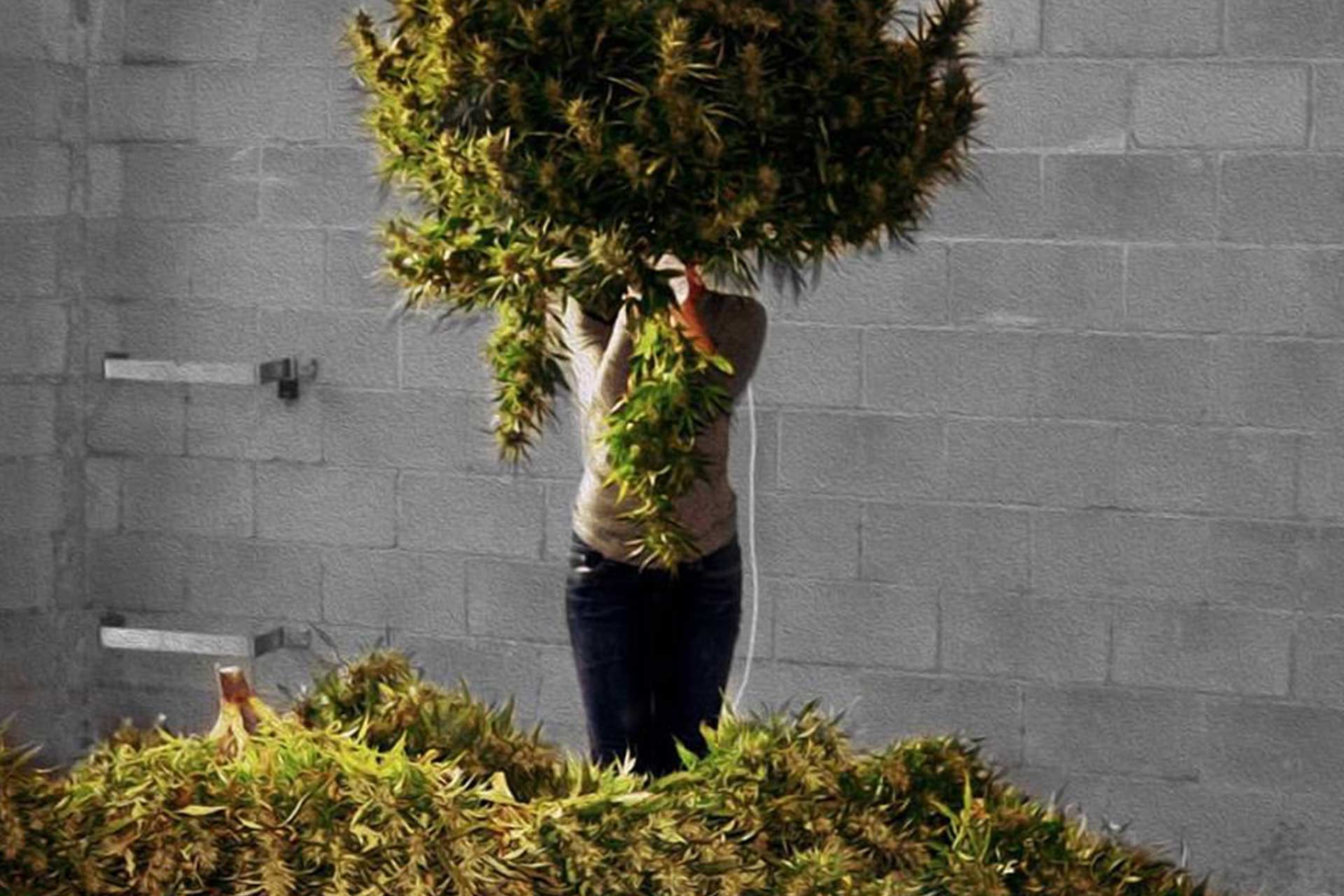
LS: HOW WOULD YOU PERSONALLY DESCRIBE THE STIGMA ASSOCIATED WITH CANNABIS USE?
SK: It’s like a dark cloud of shame and punishment that you have to carry around for no reason. Being a volleyball coach and having a passion to work with kids I walk in the door feeling judged by some of the parents and coaches. And yet those same coaches and parents are out excessively drinking with each other when they travel for tournament games. Then wake up the next day in a bad mood, hungover, and taking it out on the kids. All the while I was enjoying cannabis and a nice quiet night of sleep so I could wake up and be present for the kids. It’s a stigma that haunts me and is incredibly hard to shake while pursuing a place coaching kids. I guess this is how Batman must feel.
LS: WHAT CAN CANNABIS USERS DO TO HELP BREAK THE STIGMA ASSOCIATED WITH CANNABIS?
SK: Be honest about your cannabis use. It makes people feel uncomfortable, but to me it provides me the boundaries and limits to the people and things I choose to include in my life. If you’re an adult and have authority to speak up, it is your social responsibility and divine honor to be honest with who you are even if it makes people uncomfortable, including your family. Some of my family used to be closed off and uncomfortable with my cannabis use but over the years our conversations have evolved along with their perception because I am an educated patient of cannabis. In the end, I know way more about the benefits than they know about the negatives. It has just takes courage, faith, and integrity to keep the conversation going.

LS: WHAT’S YOUR PREFERRED METHOD OF CONSUMPTION?
SK: There’s so much we don’t know, so it’s still hard for me to say! Until then I have always smoked flower throughout the day depending on how much pain I have that day. I have just included taking edibles throughout the day along with smoking. In a perfect world I used consume cannabis orally for medicinal use and smoke cannabis for social and creative use, for now I smoke for medical until I find the same instant and consistent relief.
LS: DO YOU HAVE A FAVORITE STRAIN OR PRODUCT?
SK: For flower, I prefer hybrids of OG’s and a good CBD with a 1:1 ratio. I’ve also really fallen in love with the Wana brand. I am having great results with their edibles.
LS: WHAT ADVICE WOULD YOU HAVE FOR PEOPLE THAT ARE NEW TO CANNABIS AND MIGHT BE INTIMIDATED ABOUT MAKING THEIR FIRST VISIT TO A DISPENSARY?
SK: Take somebody that you trust and love and go with them. Having somebody that cares about you that can walk you through the process will really help. Be open with the budtenders by telling them it’s your first time and you aren’t really sure what you’re doing. They’ll joyfully guide you towards mellow, low-dose products that are good for beginners. Also remember, you don’t need to commit to buying anything, you can just go and have a conversation about the products and enjoy the experience. The feedback I get about first time visits is always a positive experience for everyone in large part to the wonderful professional and educated budtenders.
LS: STEVIE, THANK YOU SO MUCH FOR TAKING THE TIME TO CHAT WITH US!
SK: My pleasure! Always great to connect with the team at Lightshade!
Lightshade Partners with Rohan Marley for New Jersey Dispensary Application
Rohan Marley, is looking to open a medical marijuana dispensary in Montclair. He is partnering with Lightshade, a Colorado-based dispensary. It was announced that five cultivation, four vertically integrated and 15 retail dispensary licenses would be granted in New Jersey and this application could be one of them.
[no_button size="" style="" text="Read More" icon_pack="font_awesome" fa_icon="" icon_position="right" icon_color="" icon_background_color="" icon_background_hover_color="" link="https://www.northjersey.com/story/news/essex/montclair/2019/08/29/bob-marleys-son-hopes-open-medical-marijuana-dispensary-montclair-nj/2151928001/" target="_blank" color="" hover_color="" background_color="" hover_background_color="" border_color="" hover_border_color="" border_width="" font_size="" font_style="normal" font_weight="" margin="" padding="" padding_right="" border_radius=""]
Cannabis and Weight Loss: An Unlikely Combination
Cannabis consumption might help you maintain a healthy weight
New research finds that cannabis has the potential to help consumers maintain a healthy weight. Are you surprised?
People associate many things with cannabis – weight loss isn’t one of them. And while scientific evidence supports the Doritos-ravaging stoner stereotype, new research shows that cannabis consumption might help you maintain a healthy weight.
The International Journal of Epidemiology studied more than 30,000 participants to learn if they are less likely to gain weight through cannabis consumption. Their findings are a surprise, even to those of us steeped in cannabis education. In short, people who regularly consume cannabis are less likely to become obese or overweight when compared to those who don’t.
The study, conducted over three years found that while all participants put on weight, those who consumed cannabis experienced a lower volume of weight gain than those who abstained. The researchers think that cannabis might create cellular changes that influence weight gain. Other studies offer similar findings. 2011 research conducted by the American Journal of Epidemiology found that while cannabis is shown to stimulate a person’s appetite, cannabis consumers are less likely to be obese than non-consumers. Similar studies have also found that, in contrast to popular belief, cannabis lovers have smaller waistlines than those who abstain, and they have lower cholesterol levels.
Scientists think THC, the compound responsible for cannabis’ psychoactive effects, is also responsible for the belly-busting attributes of our favorite plant. Researchers at the University of Calgary put this theory to the test by giving fat mice – and trim mice – a daily dose of THC, and compared the results. They discovered that while THC had no impact on the size of the mice who started the study at a healthy weight, it caused the fat mice to slim down. Researchers hypothesize that THC changes the gut microbiome in such a way that it helps to regulate weight loss and digestion.
Additional studies backup the University of Calgary findings, leading many scientists to conclude that there is indeed a correlation between cannabis consumption and a reduction in body weight. The results hold across genders, age groups, and reasons for use (recreational or medical).
Researchers are quick to point out, however, that we are in the early phases of understanding how marijuana impacts weight. Evidence suggests the effects of cannabis on weight fluctuations are, like everything else surrounding this historically misunderstood plant, complicated. Every cannabis consumer knows consumption often leads to the munchies, and if you eat a bag of Doritos or a pint of ice cream, you will gain weight. Still, this new research suggests that consumers who avoid post-smoke munchies might enjoy a reduction in overall body fat.

Of course, other habits are essential for maintaining a healthy weight, and consumers shouldn’t assume they can smoke-off their extra baggage. If you don’t exercise regularly and have less-than-ideal eating habits, consuming cannabis won’t help you lose weight. It will probably have the opposite effect.
It’s also essential every person pays attention to the quality of their food sources. Fast food, processed food, and foods with hidden fat and sugar are the enemy of healthy weight. It’s becoming increasingly difficult to avoid these kinds of foods, and when you factor-in stressful lifestyles and anxiety, you’ve got the perfect recipe for weight gain.
We should mention cannabis is helpful for general stress and anxiety relief. Emotions influence how our bodies metabolize calories. Controlling your stress levels with cannabis is a positive way to reduce the metabolic impact of daily stressors.
It’s also worth noting that CBD is known as an appetite suppressant, making it an excellent option for consumers battling a compulsive desire to eat. CBD alone does not get you high, meaning it can be consumed during the day without hindering your ability to work or run errands.
Cannabis is no substitute for an excellent diet, but it helps maintain a healthy weight, and even more-so when included as part of an overall healthy lifestyle. Relieve your body and mind with an ancient natural remedy.
Drop by one of our medical dispensaries or recreational dispensaries to pick up your favorite cannabis products and start to explore new ways to incorporate cannabis into your lifestyle.
First Tuesday - Volunteer with Firefighters
Lightshade staff came together for First Tuesday to volunteer with Federal Heights firefighter to help feed 1,400 residents in need.
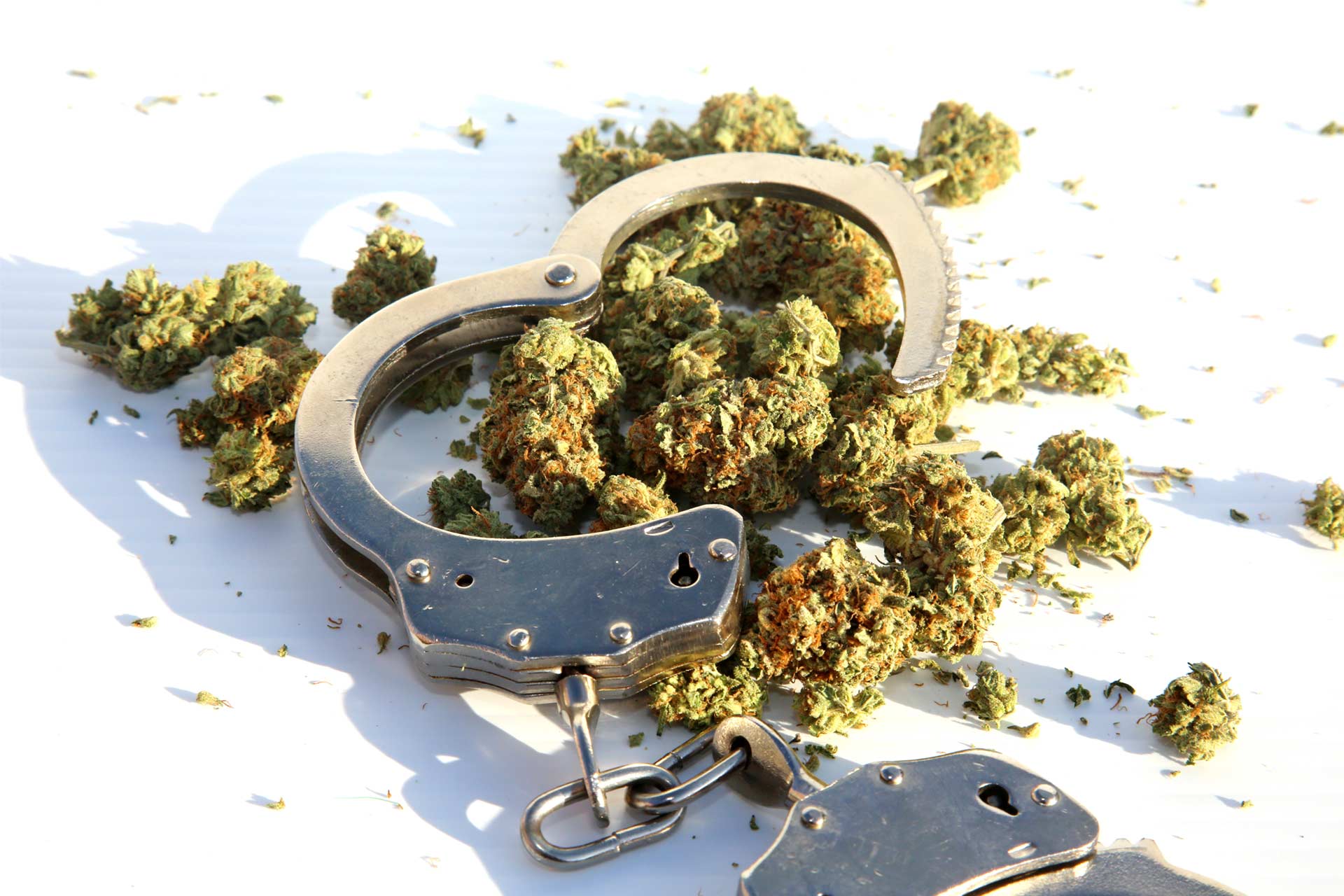
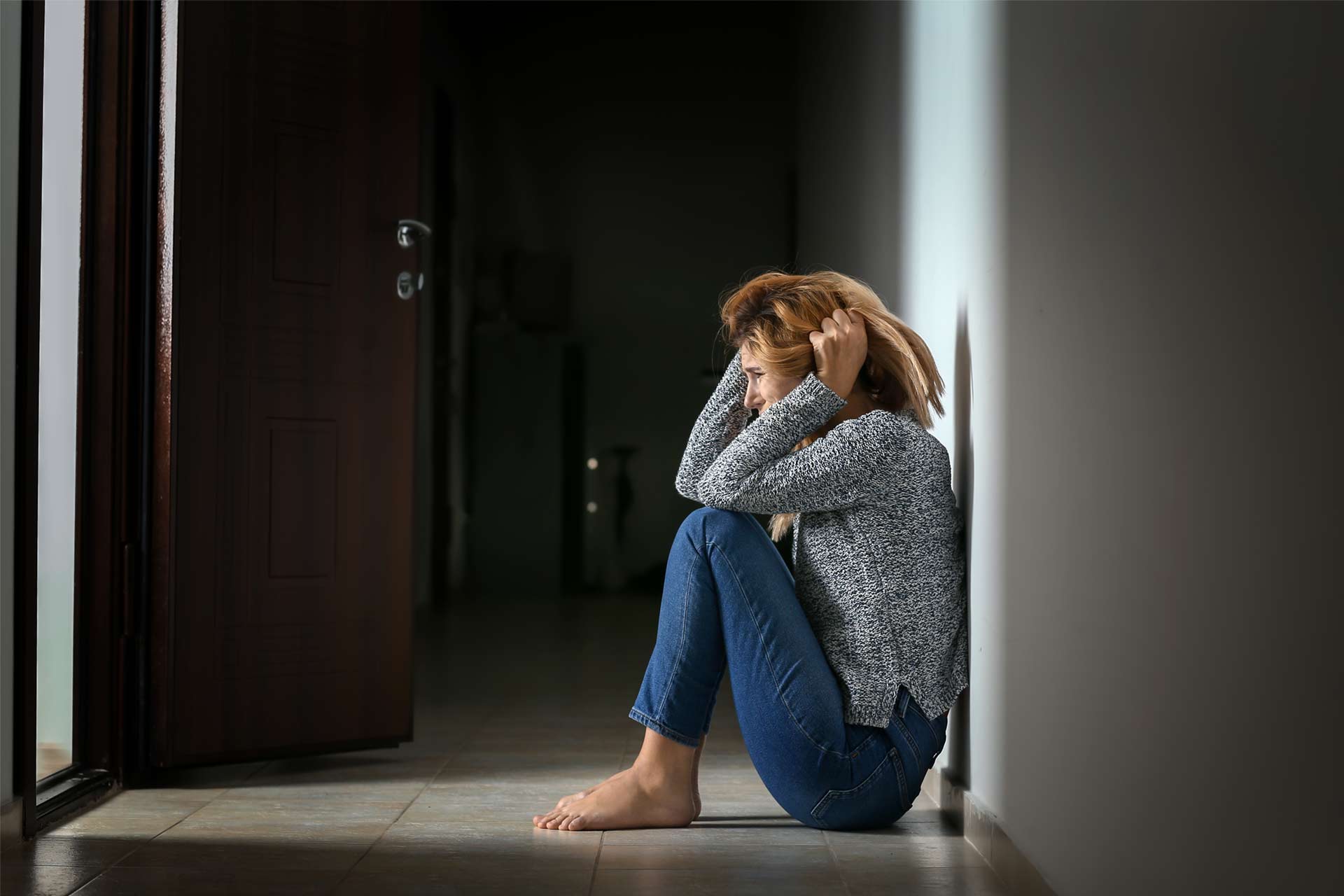


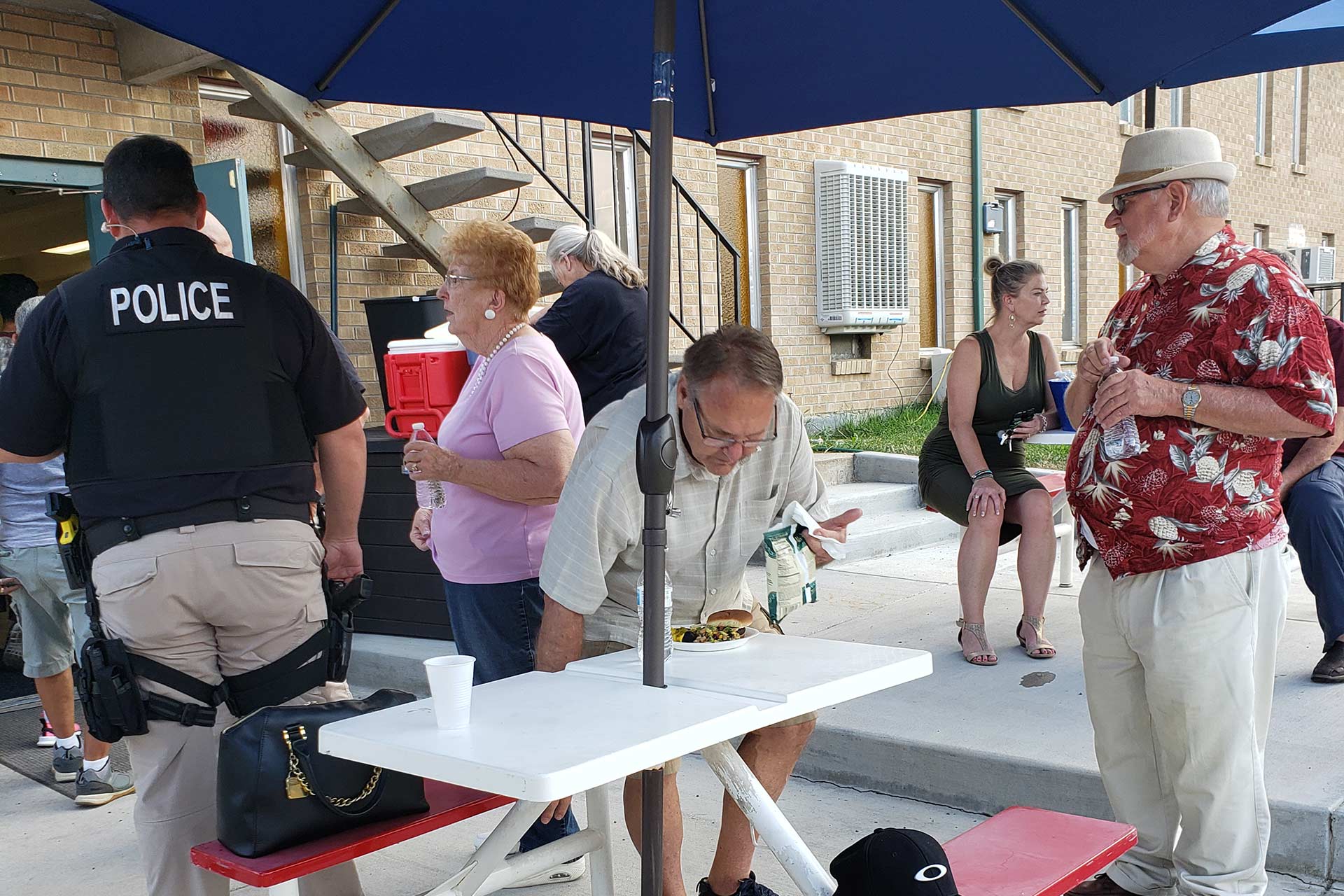
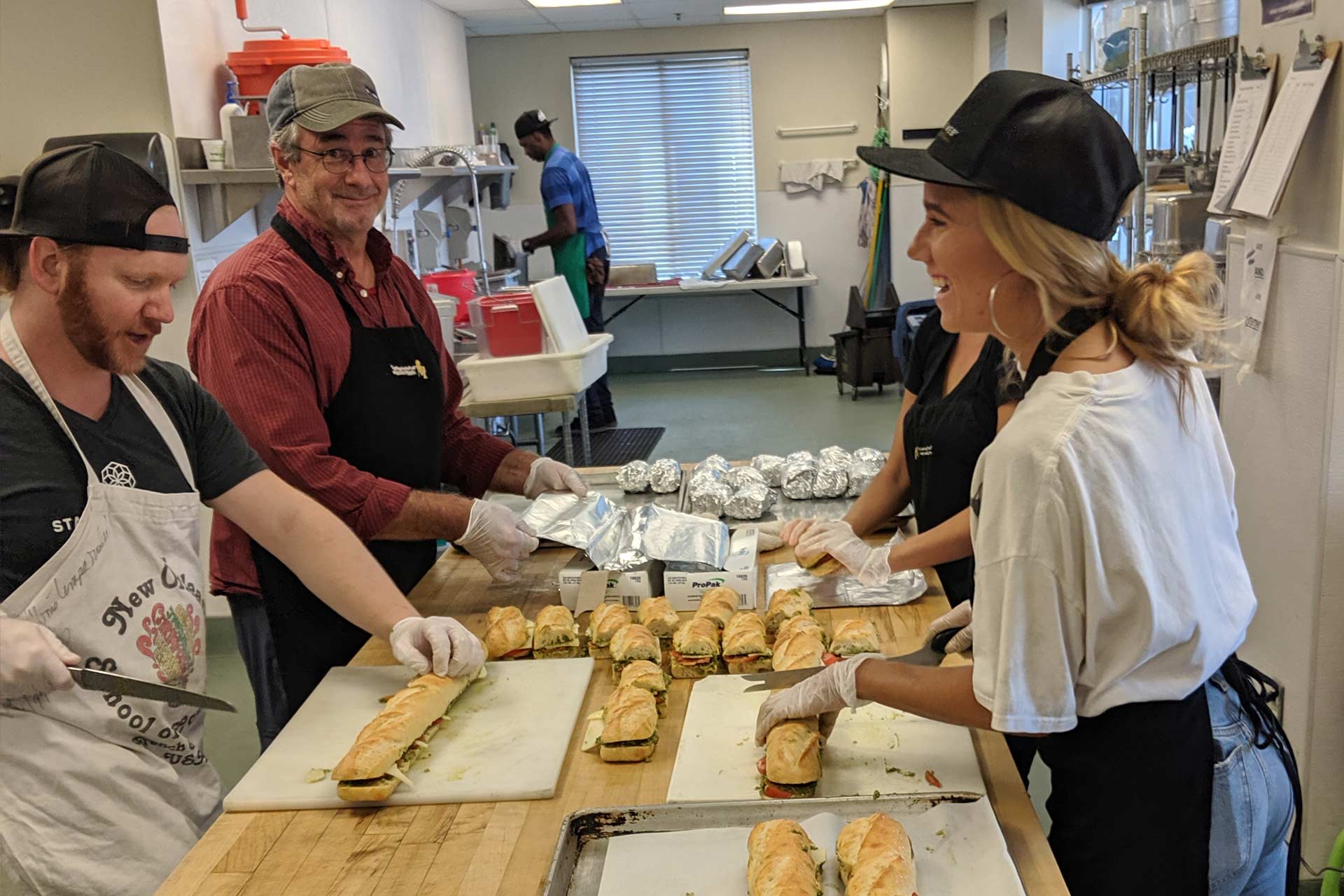
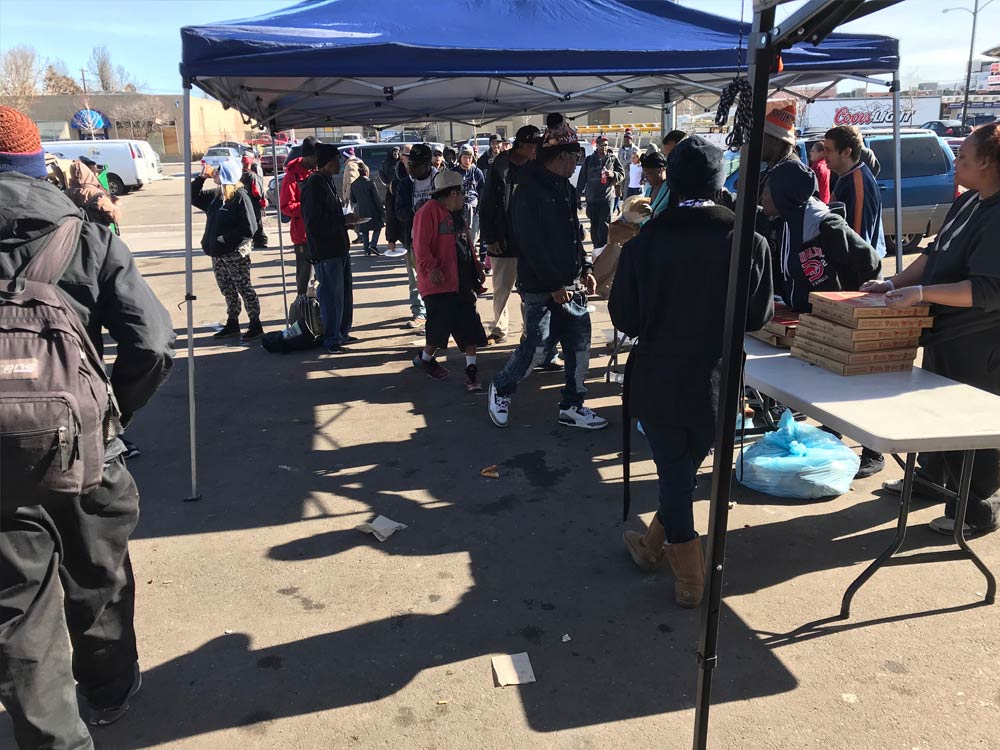
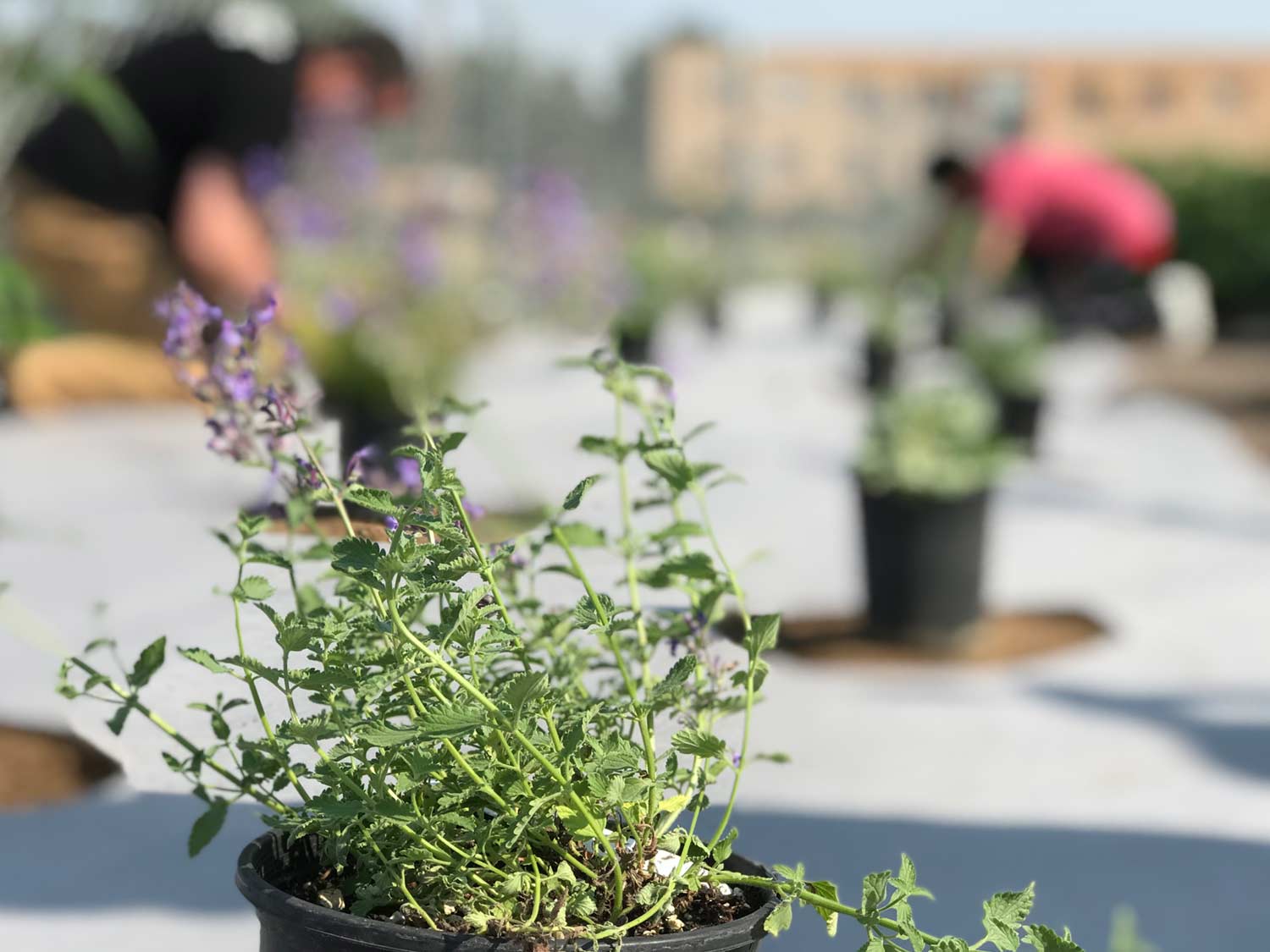
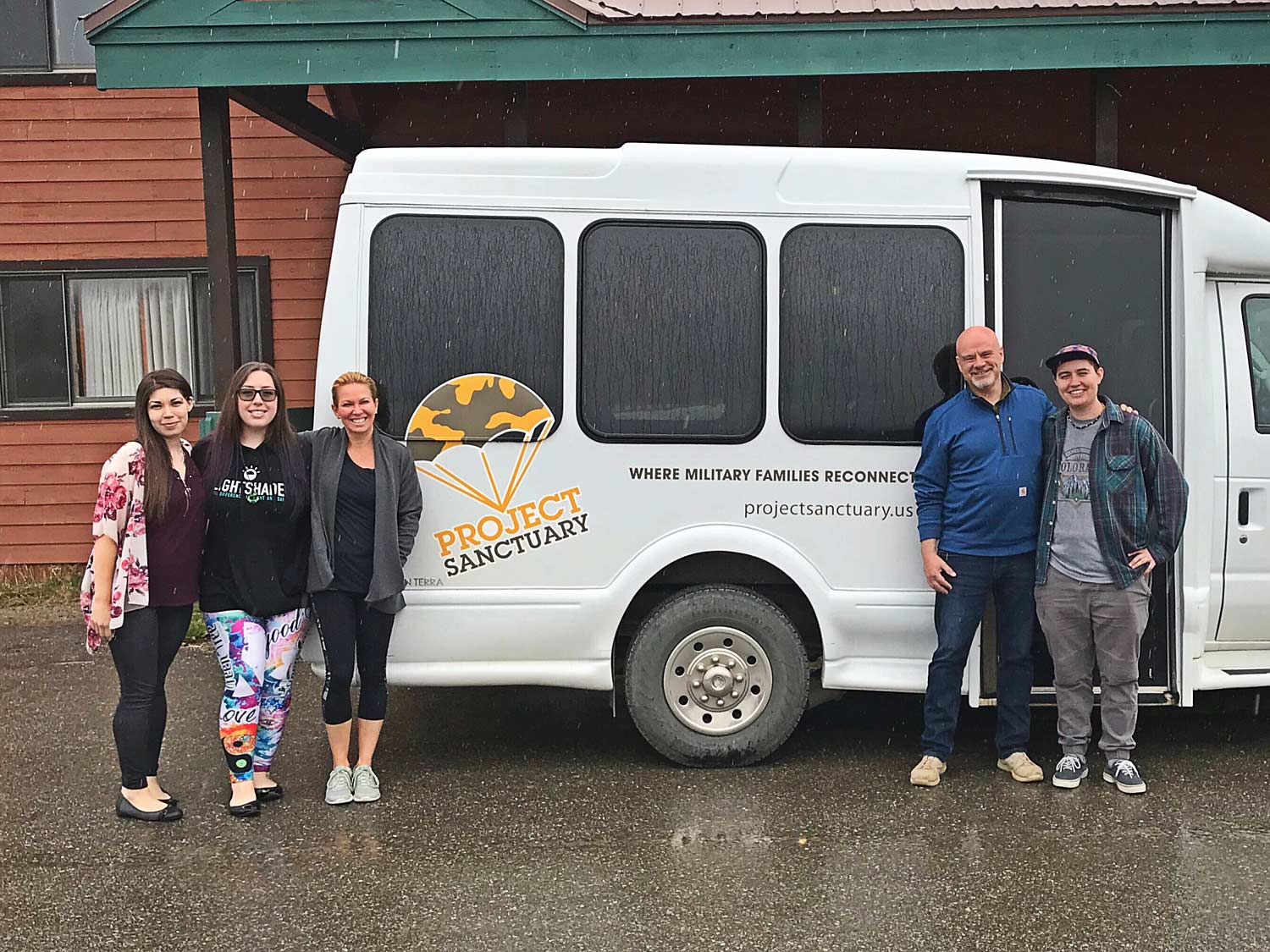
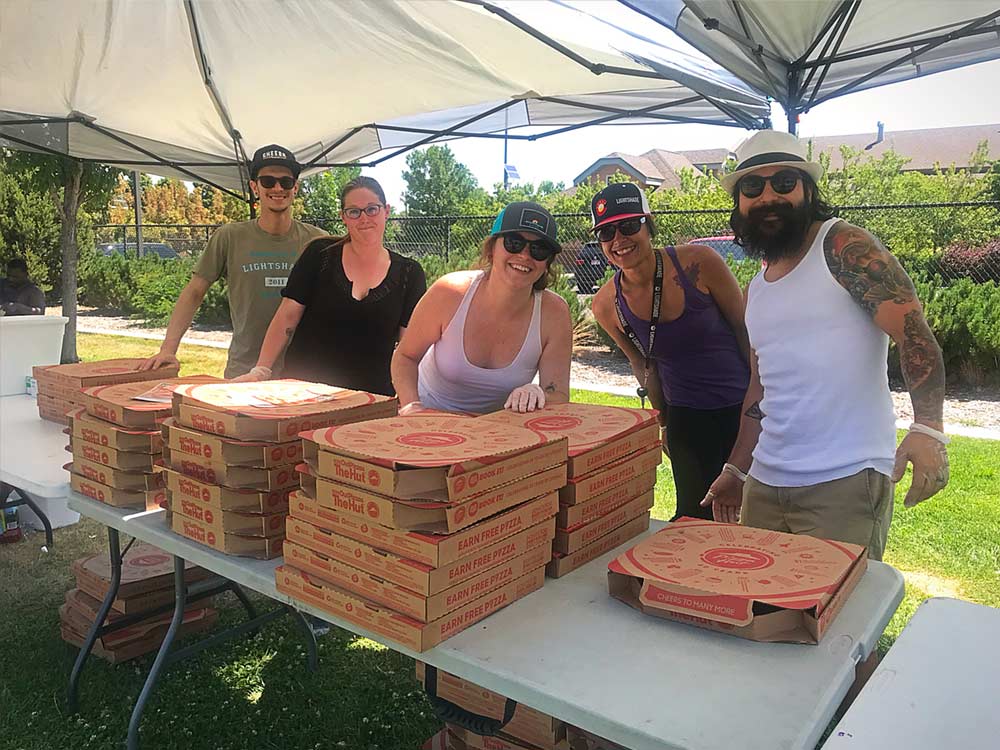
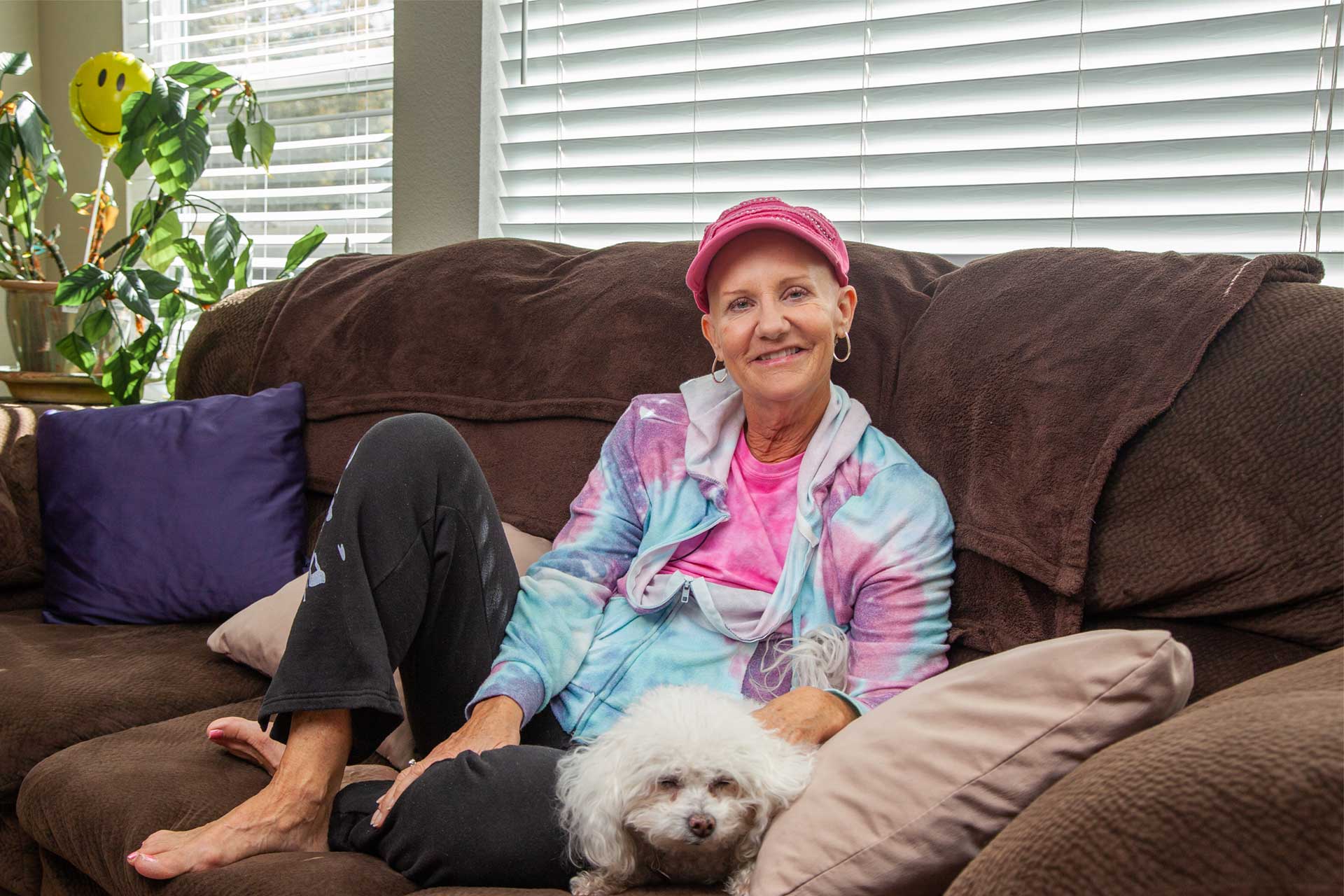
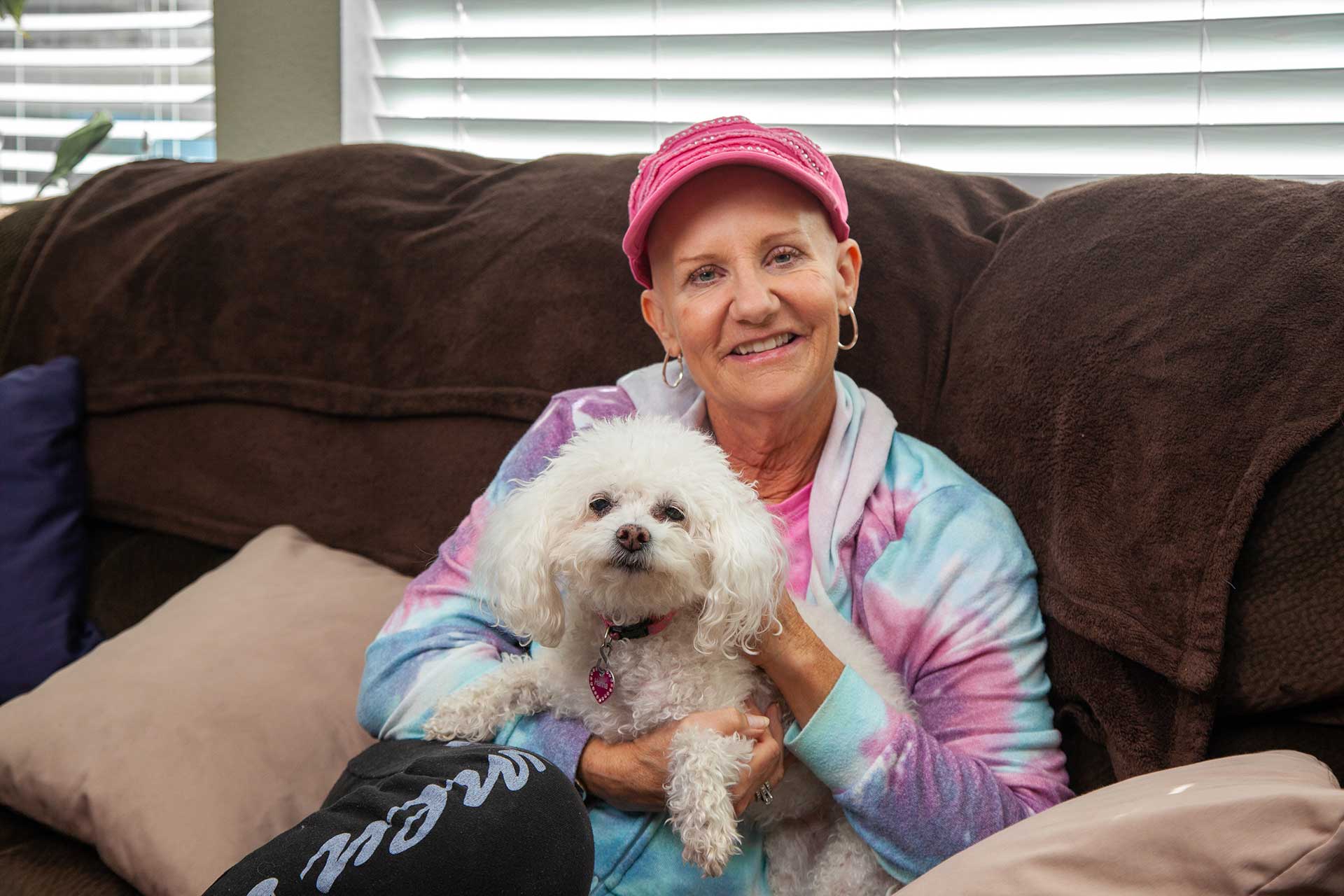
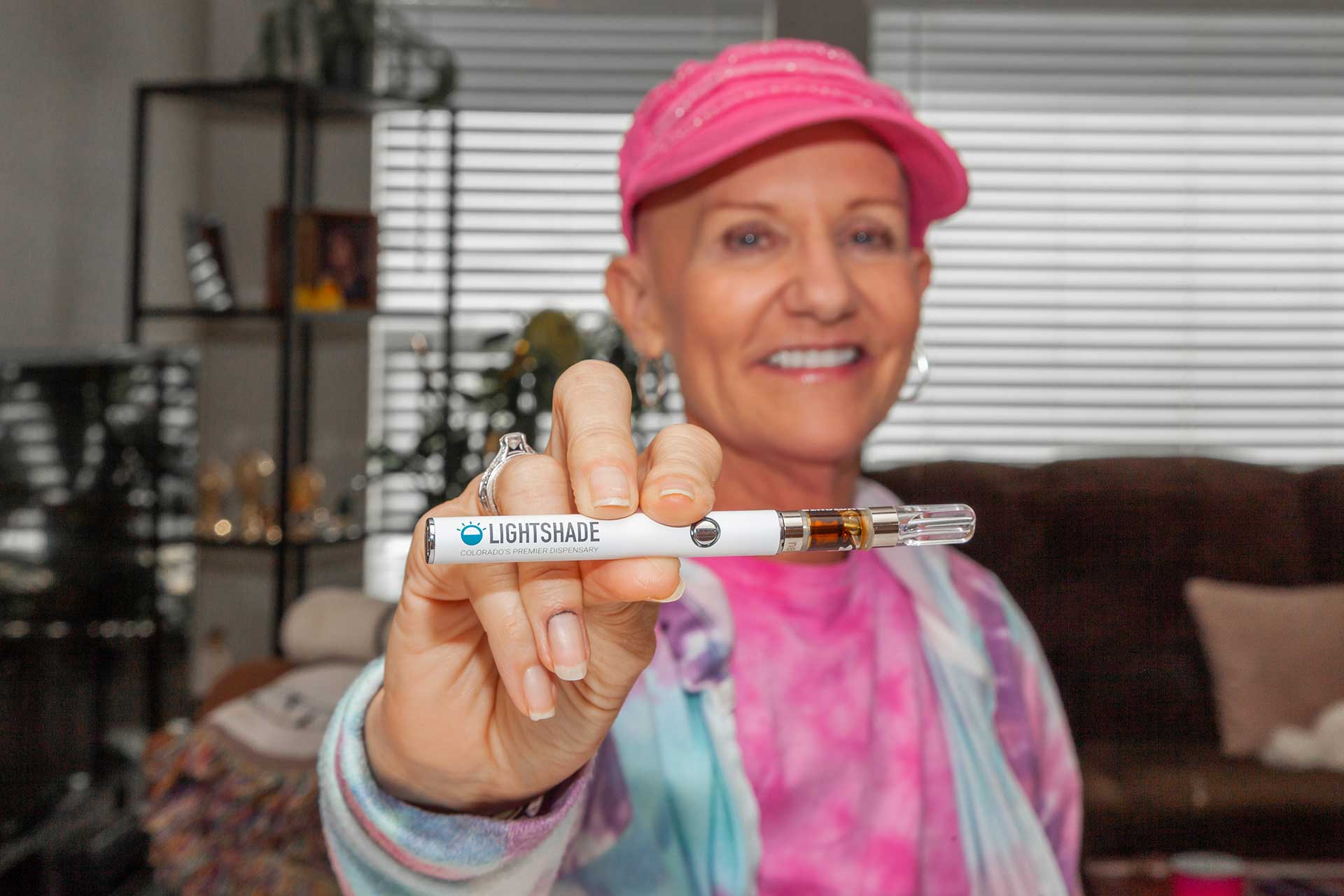
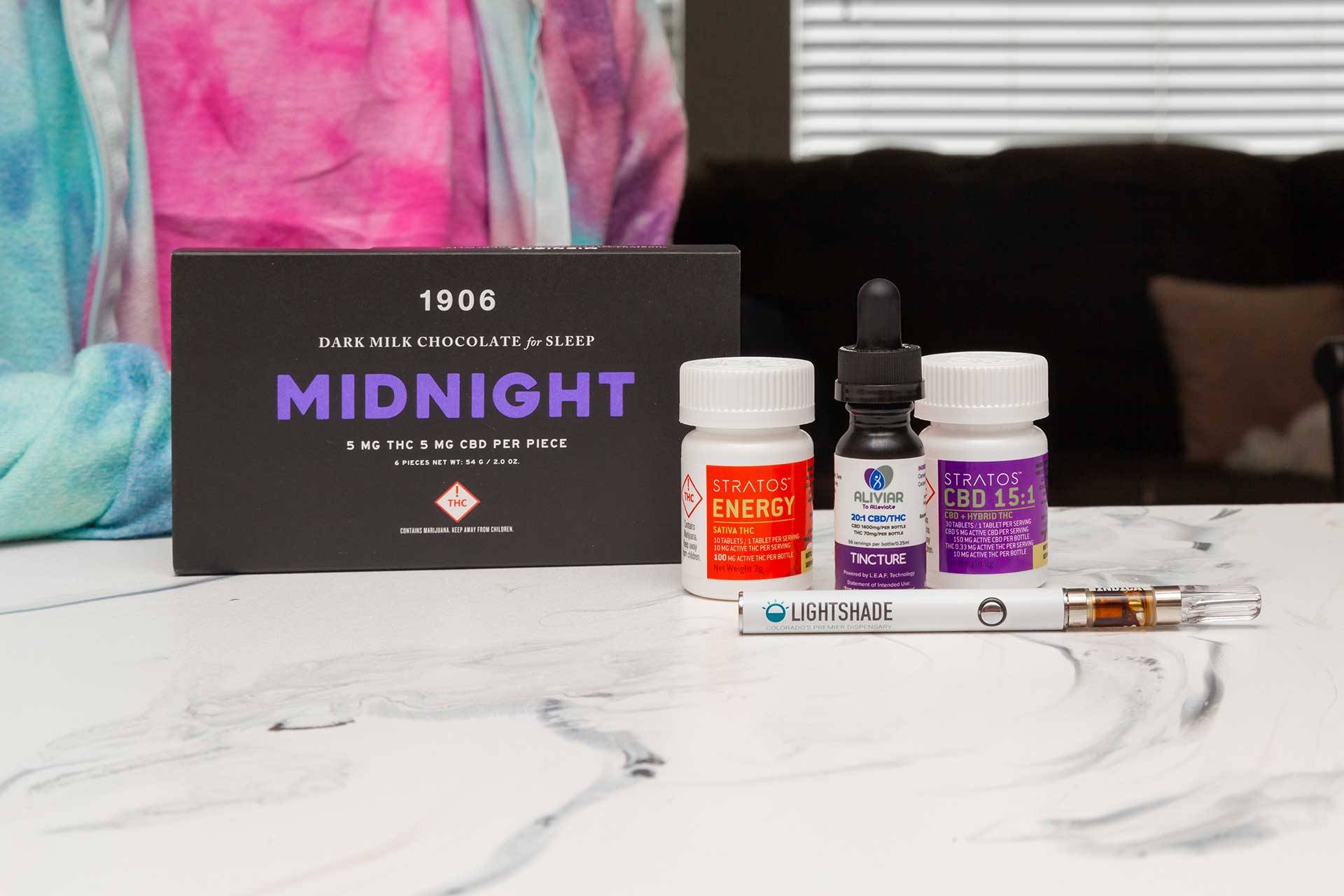
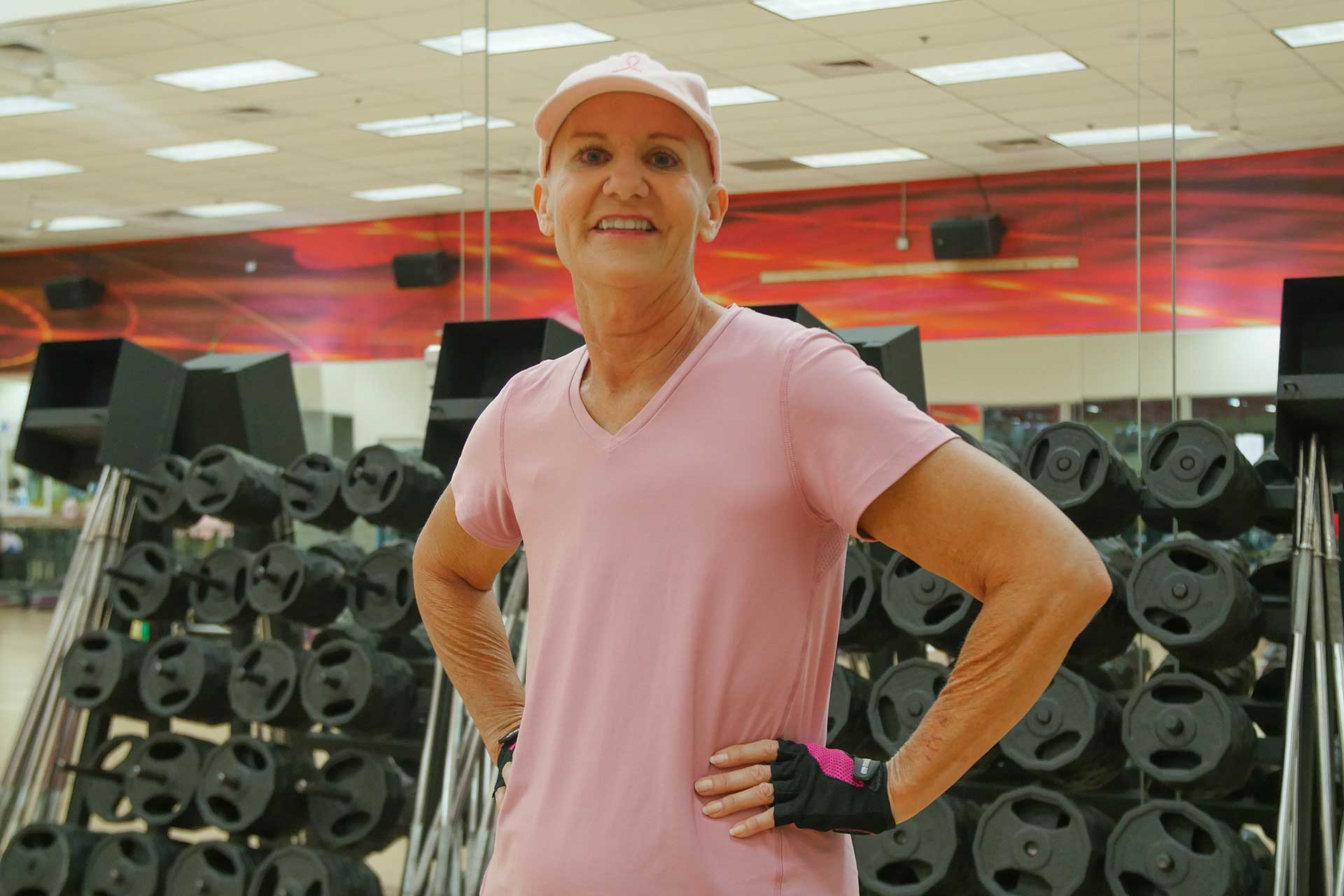
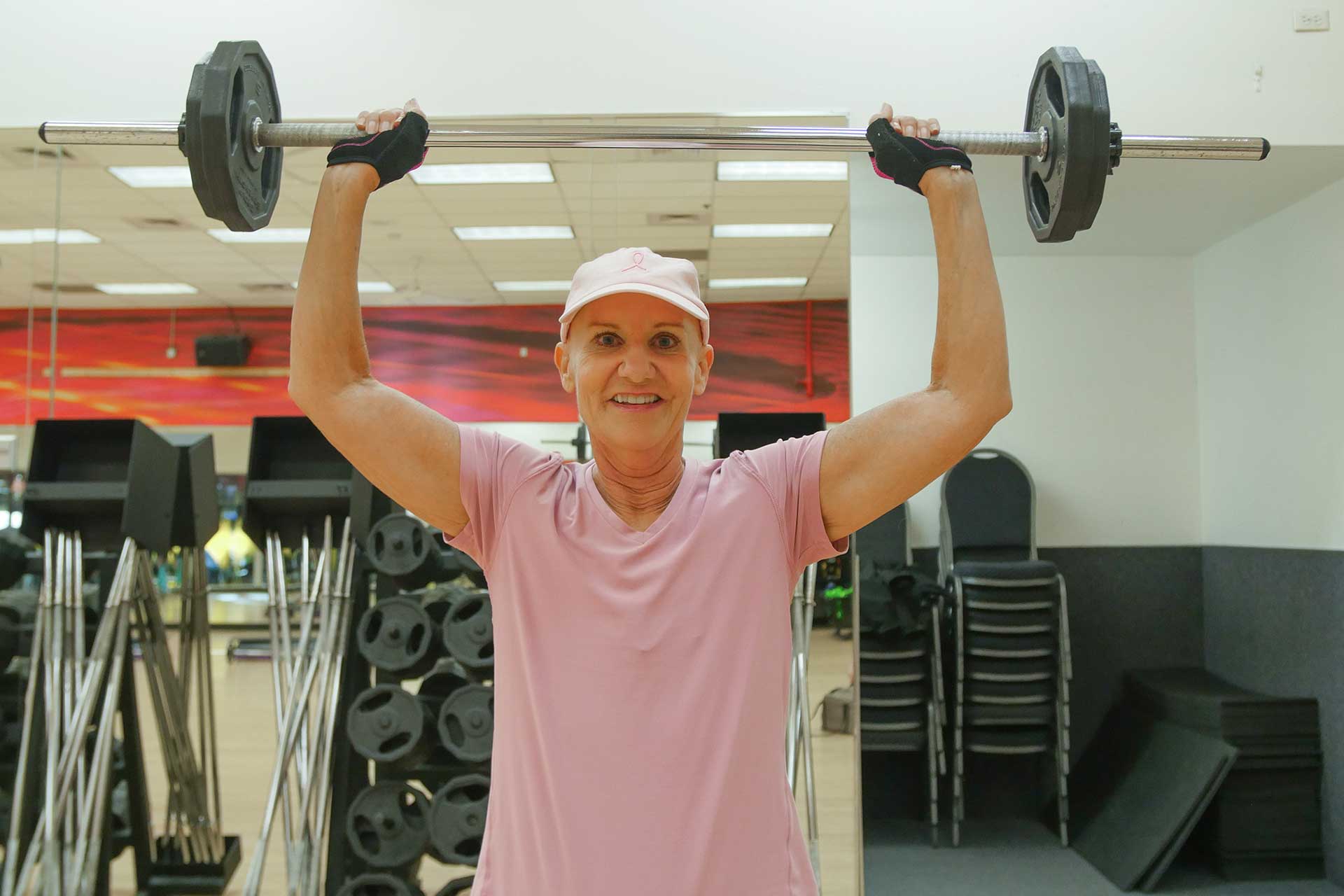
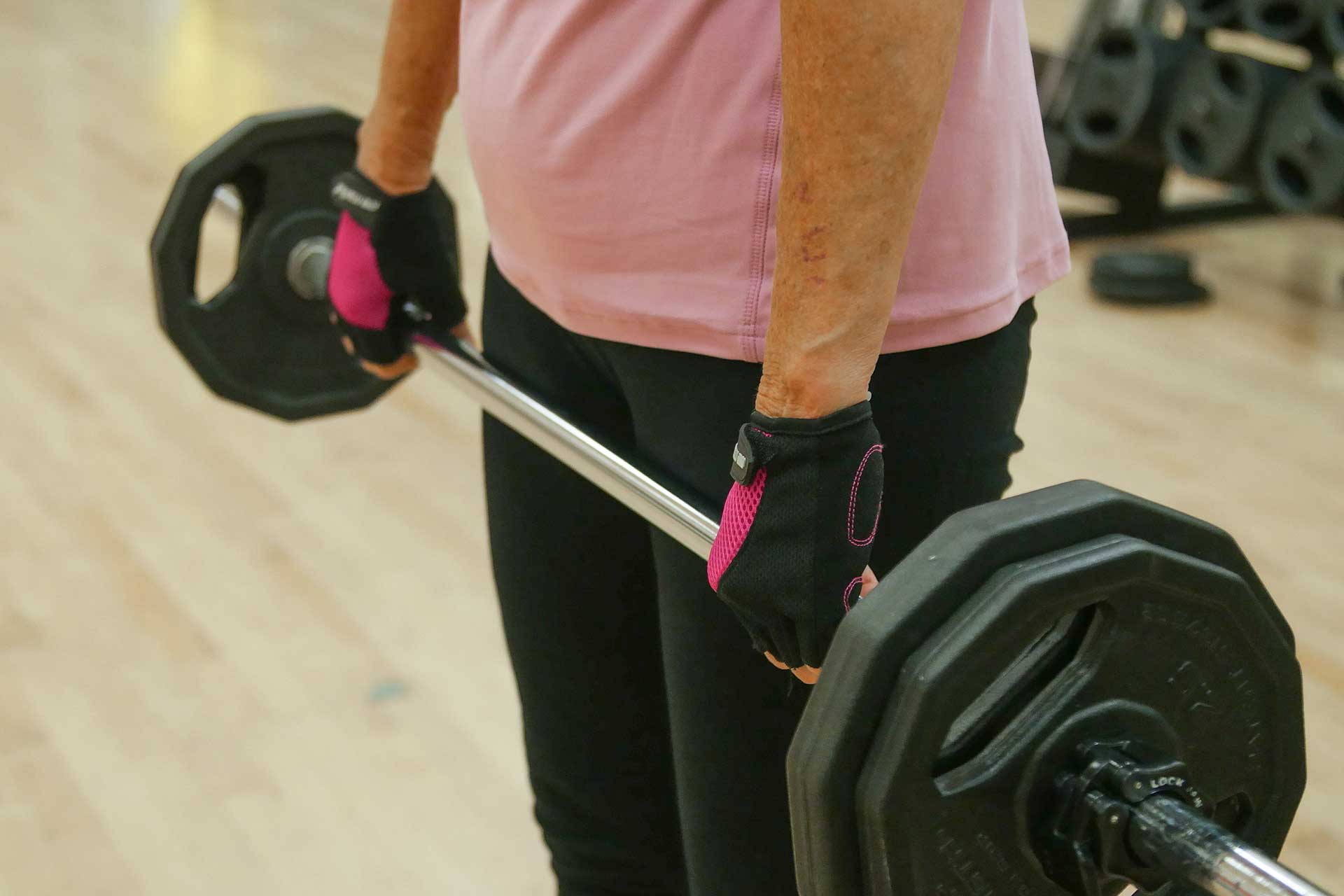
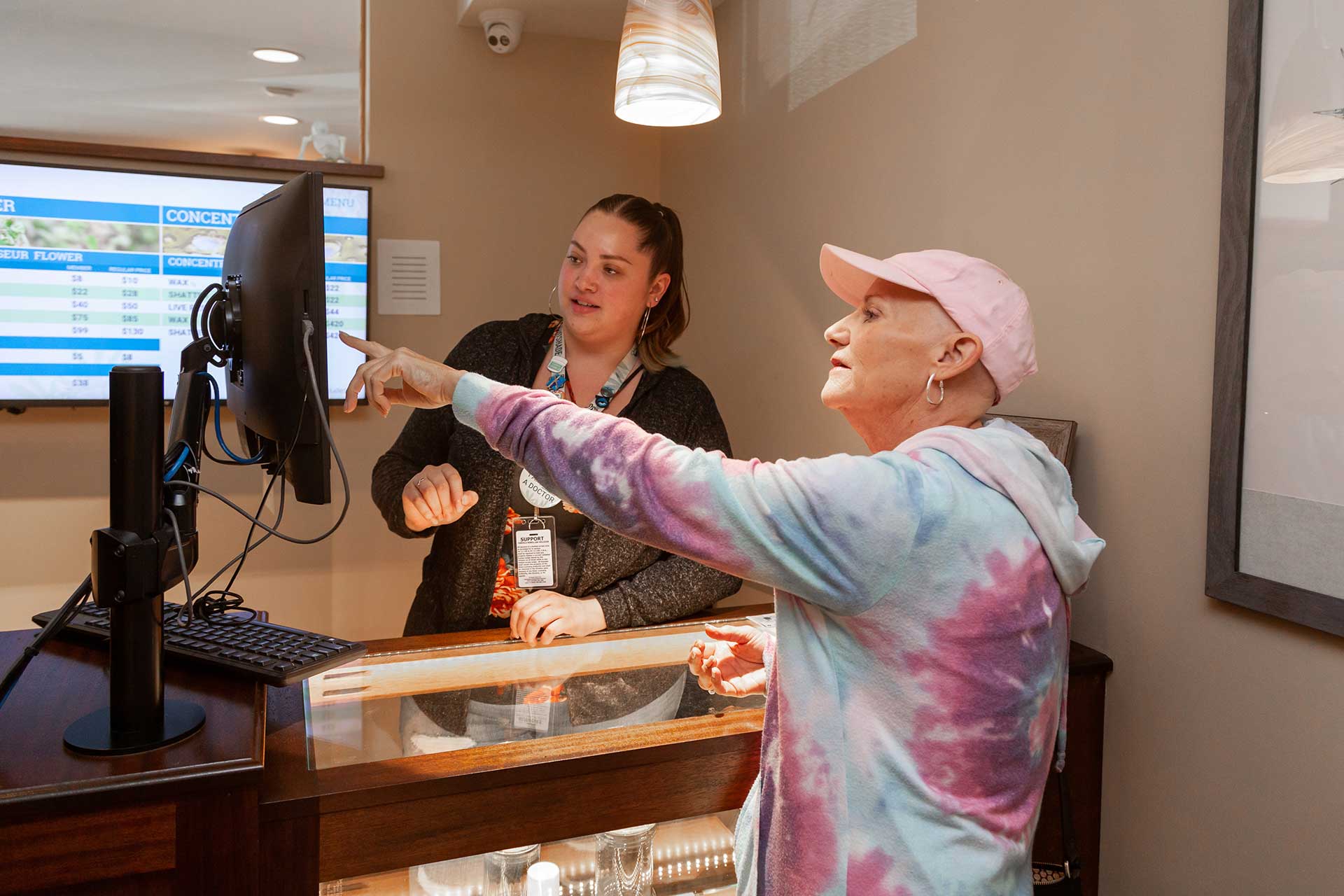


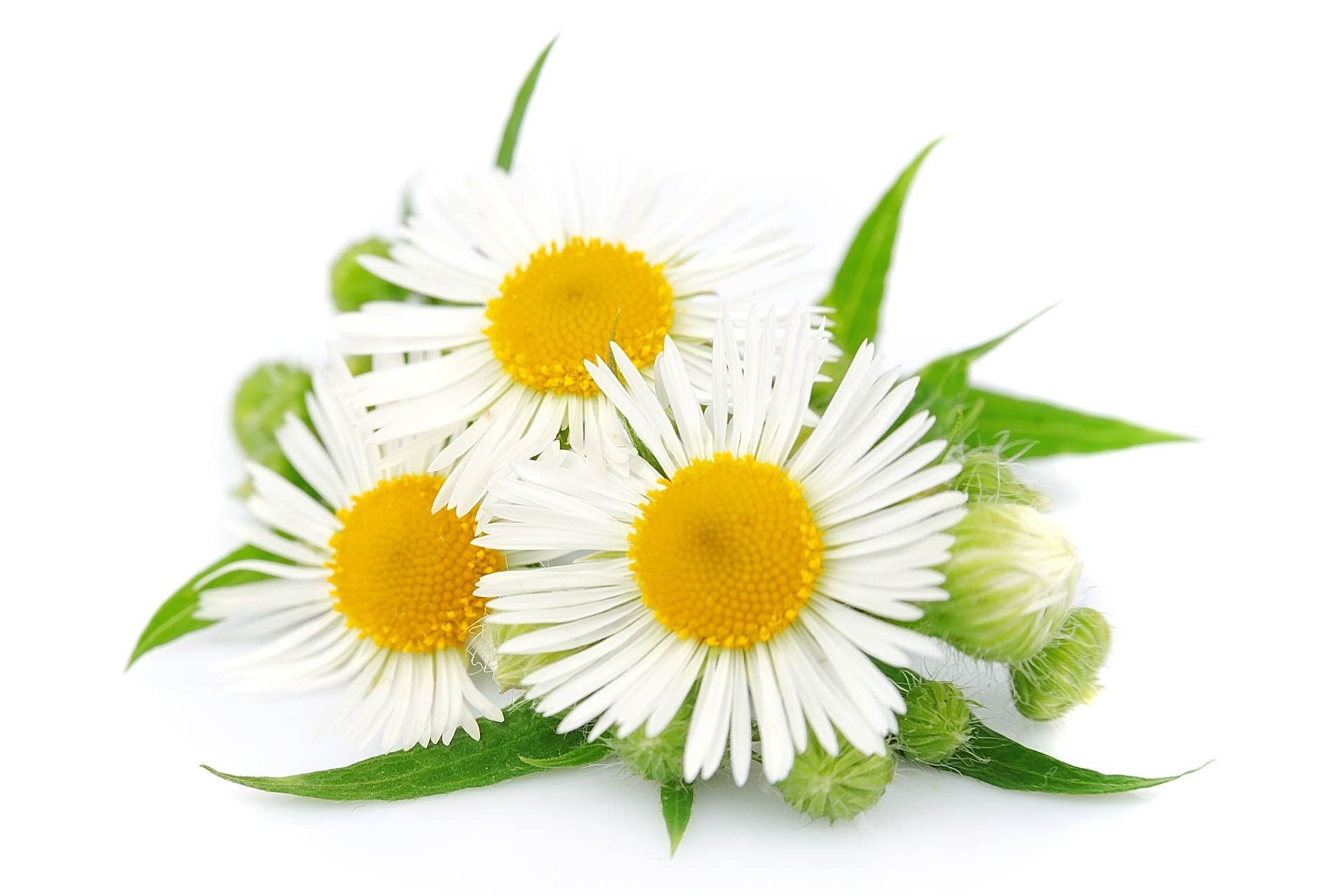
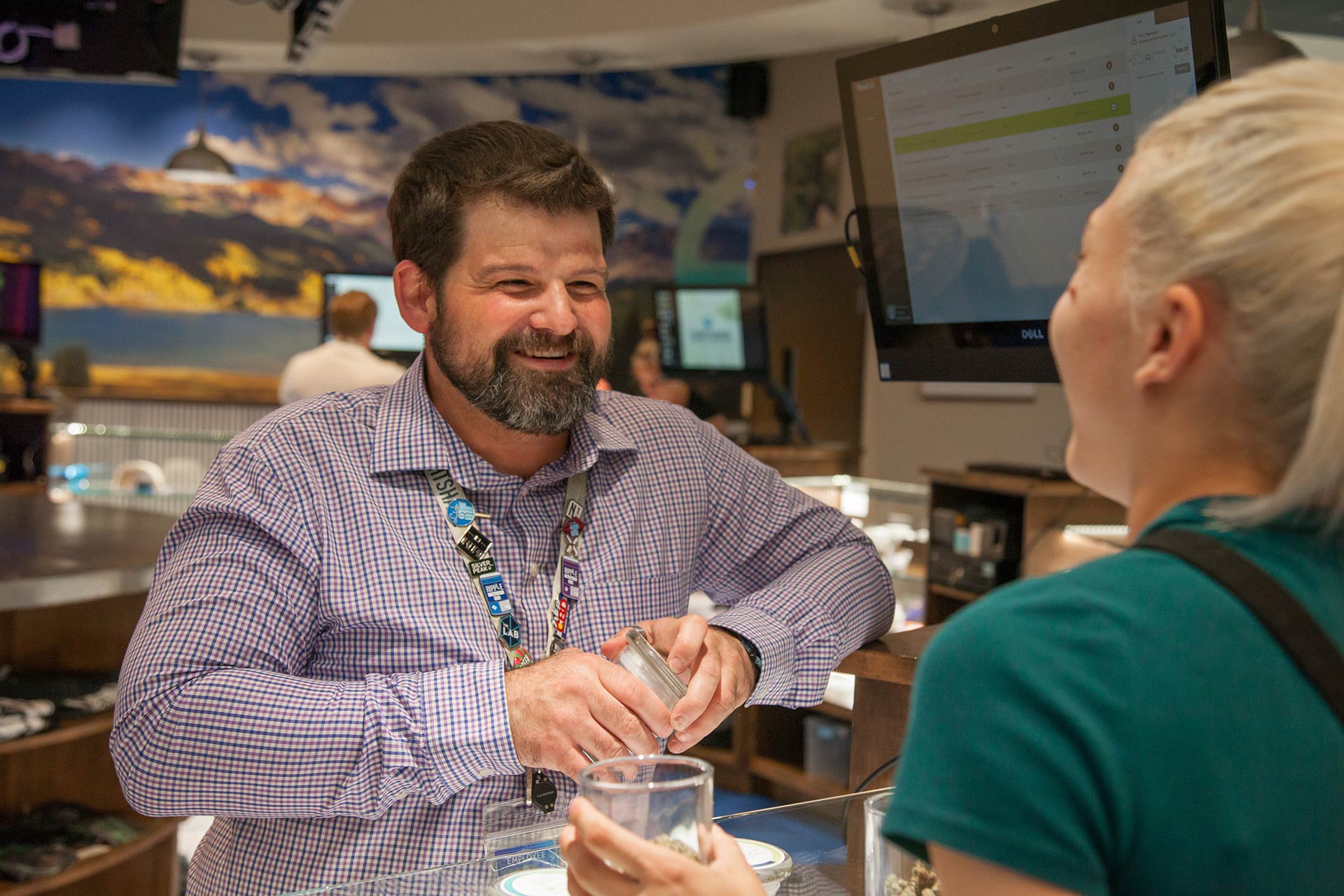
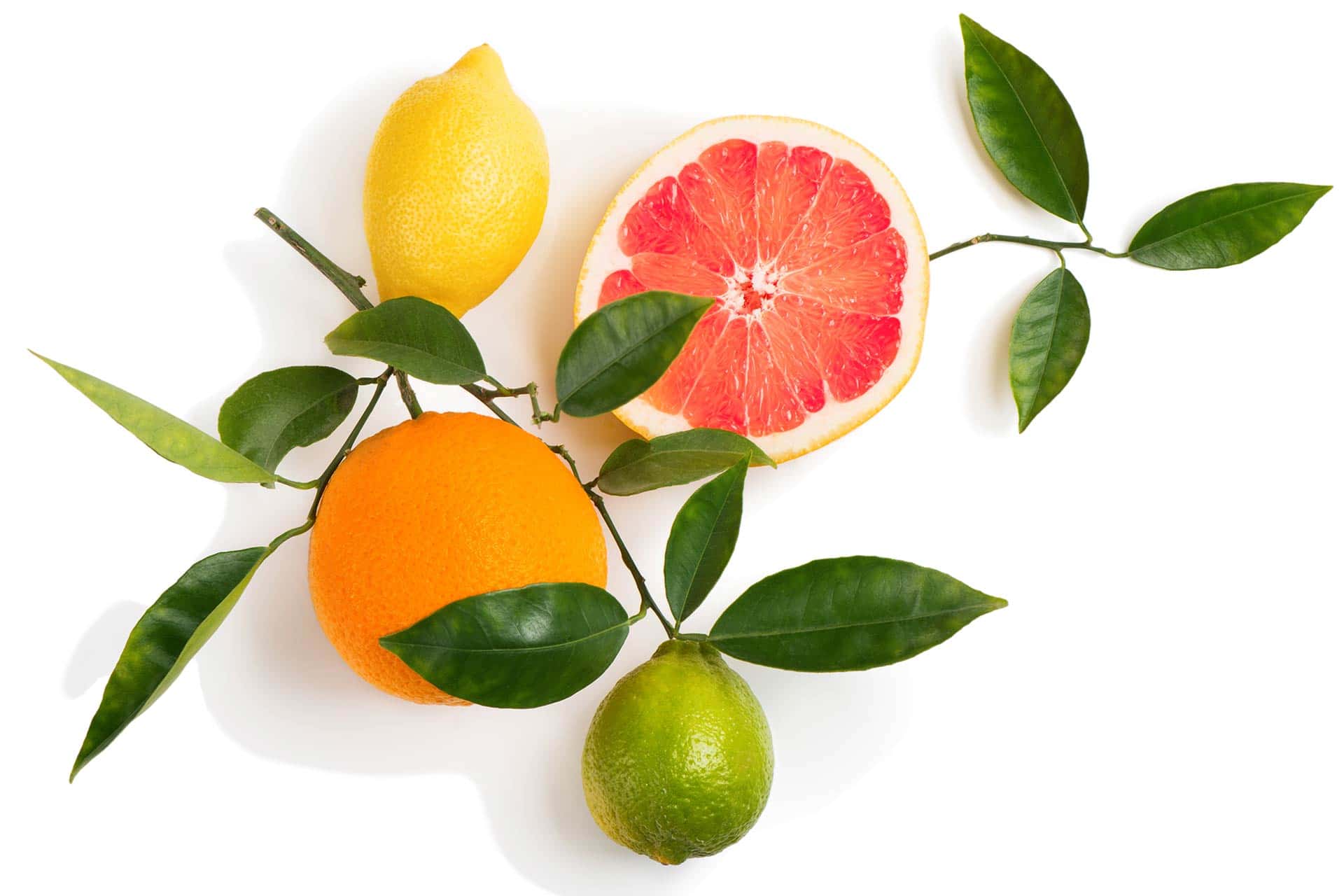 What’s the deal with terpenes?
What’s the deal with terpenes? 